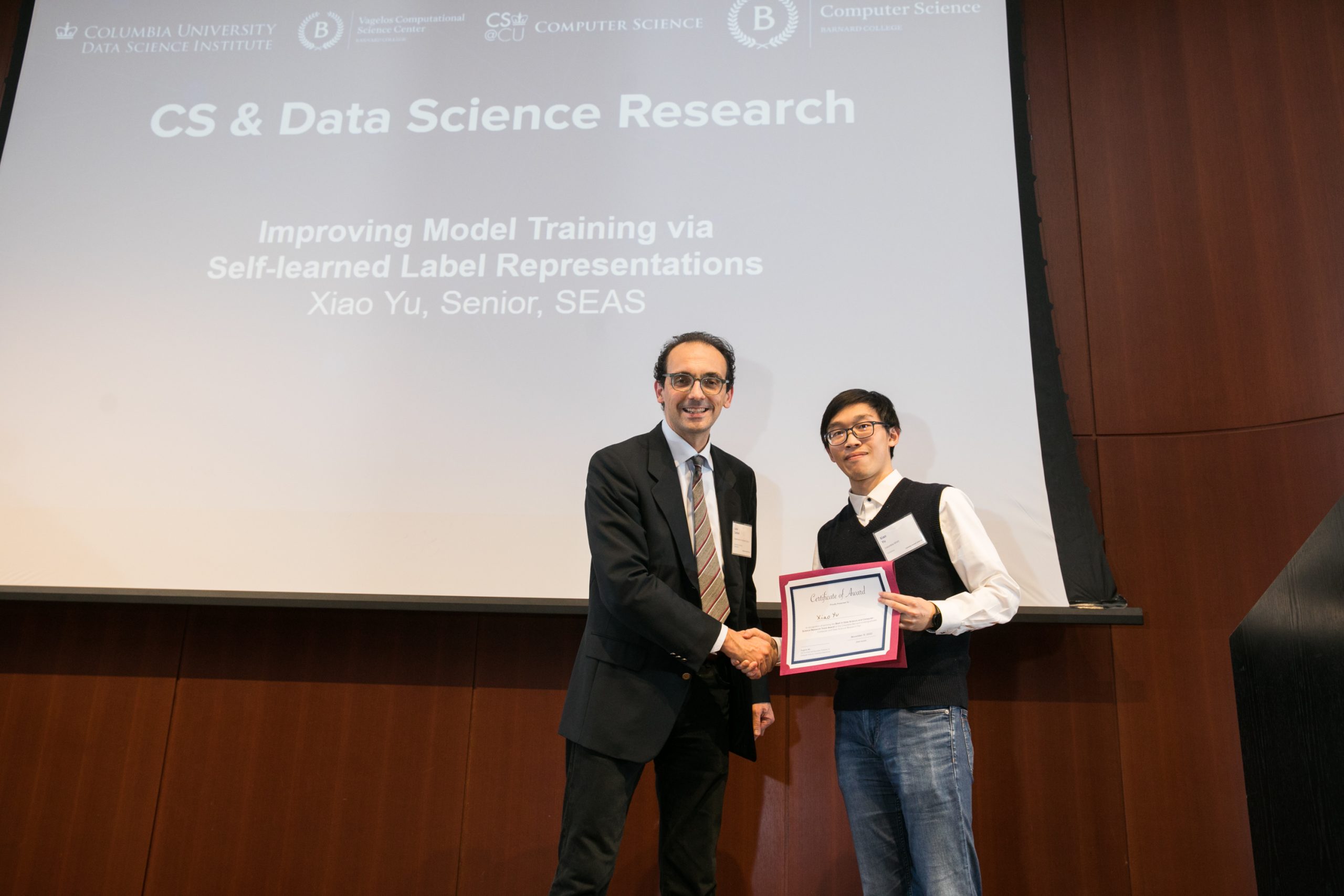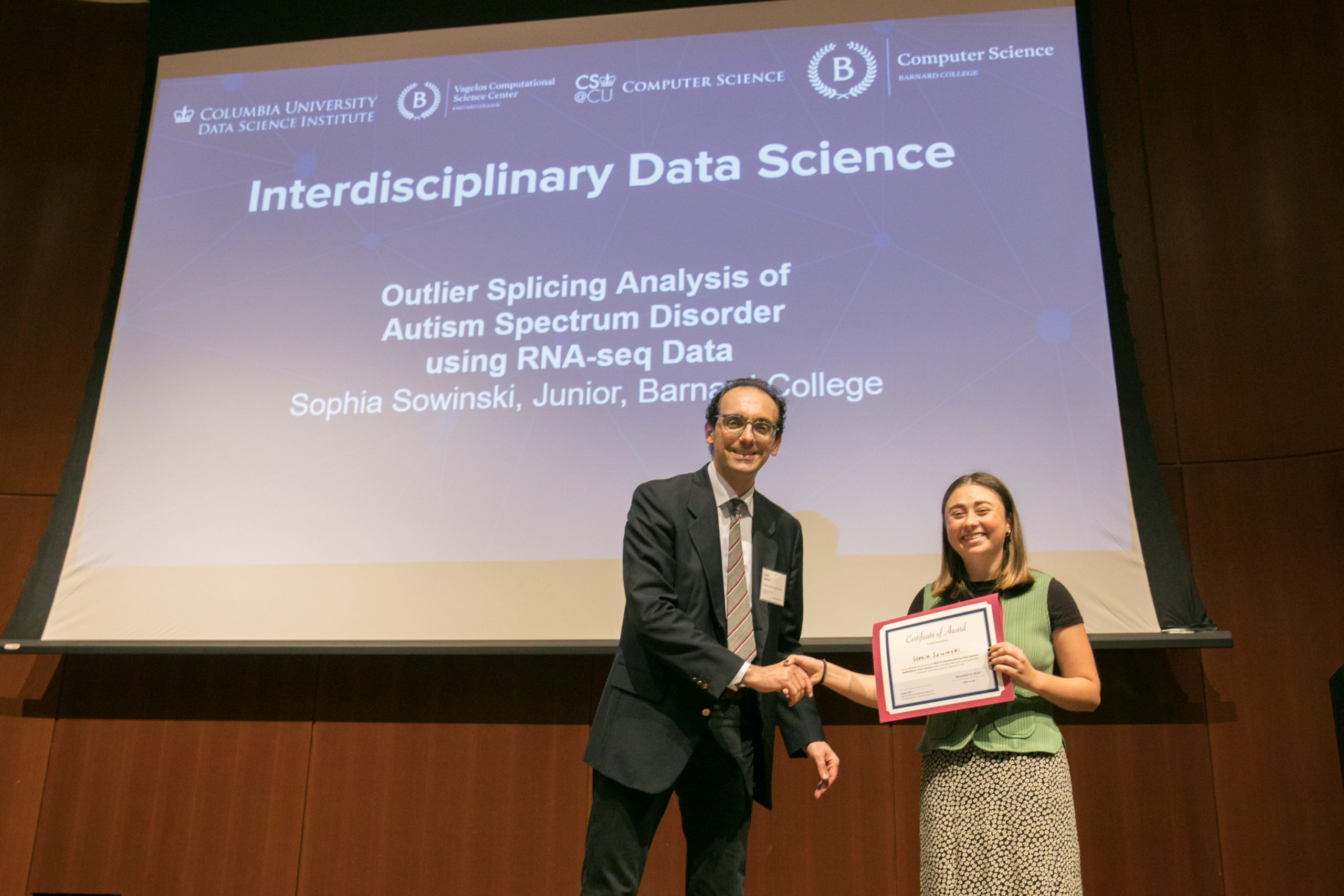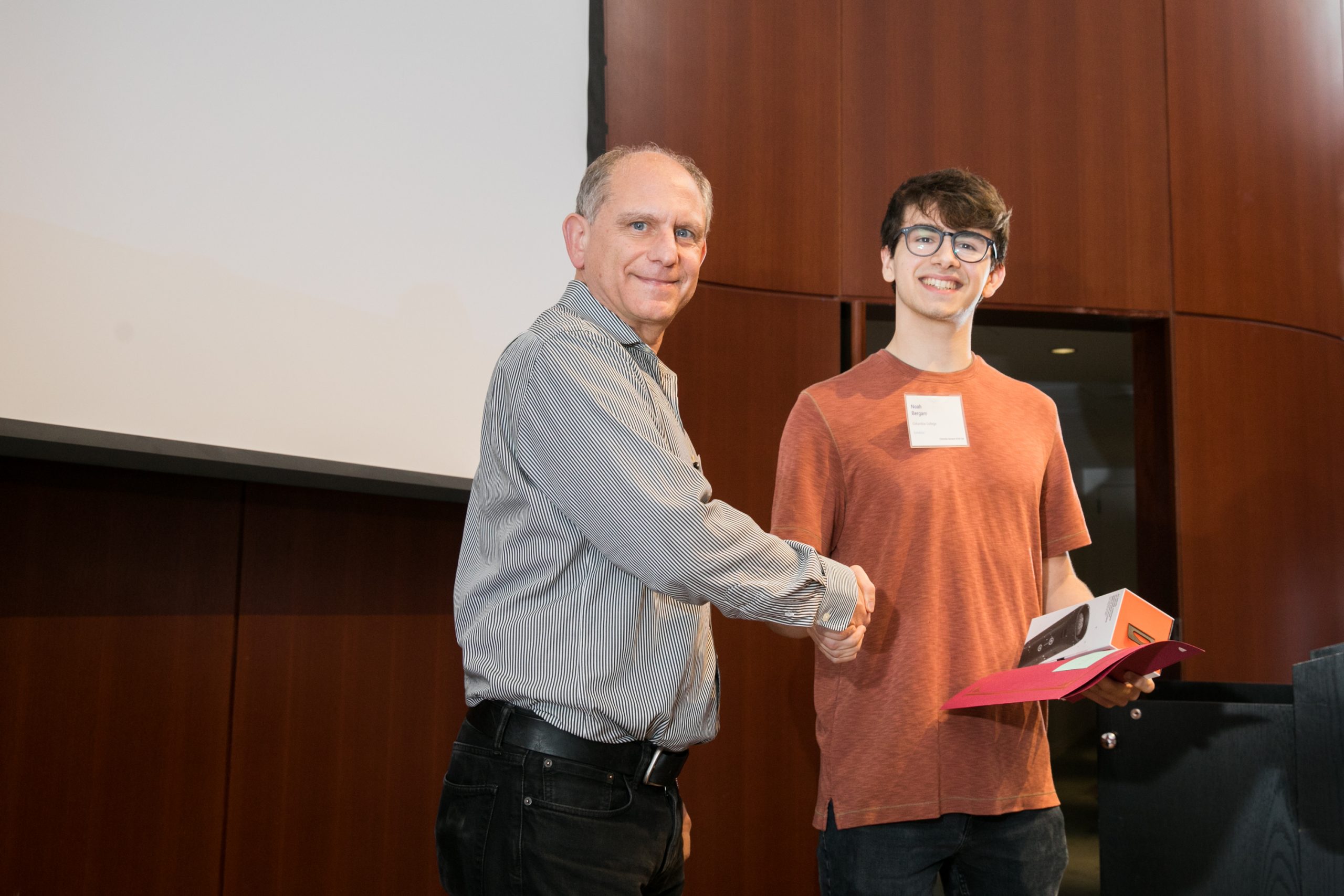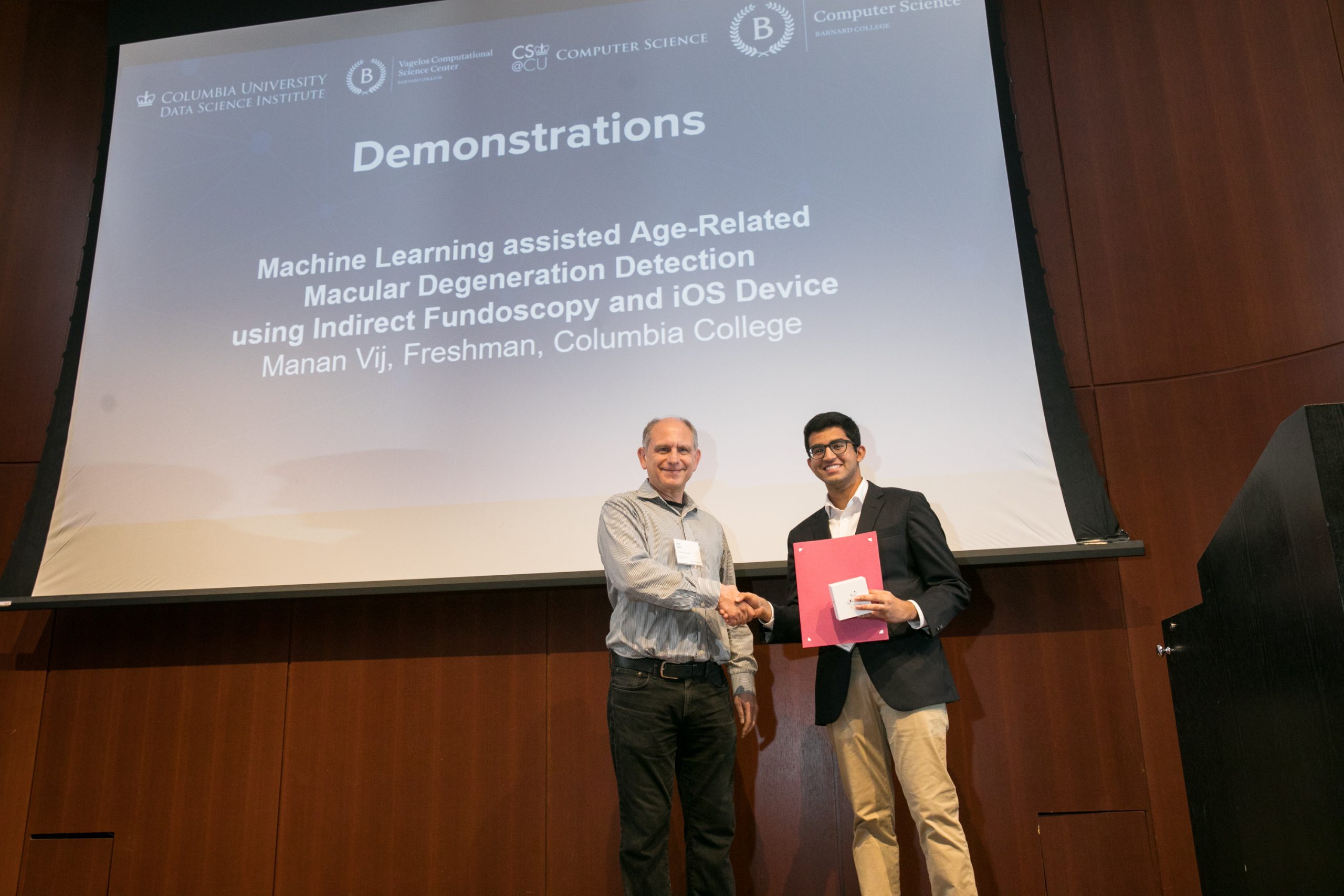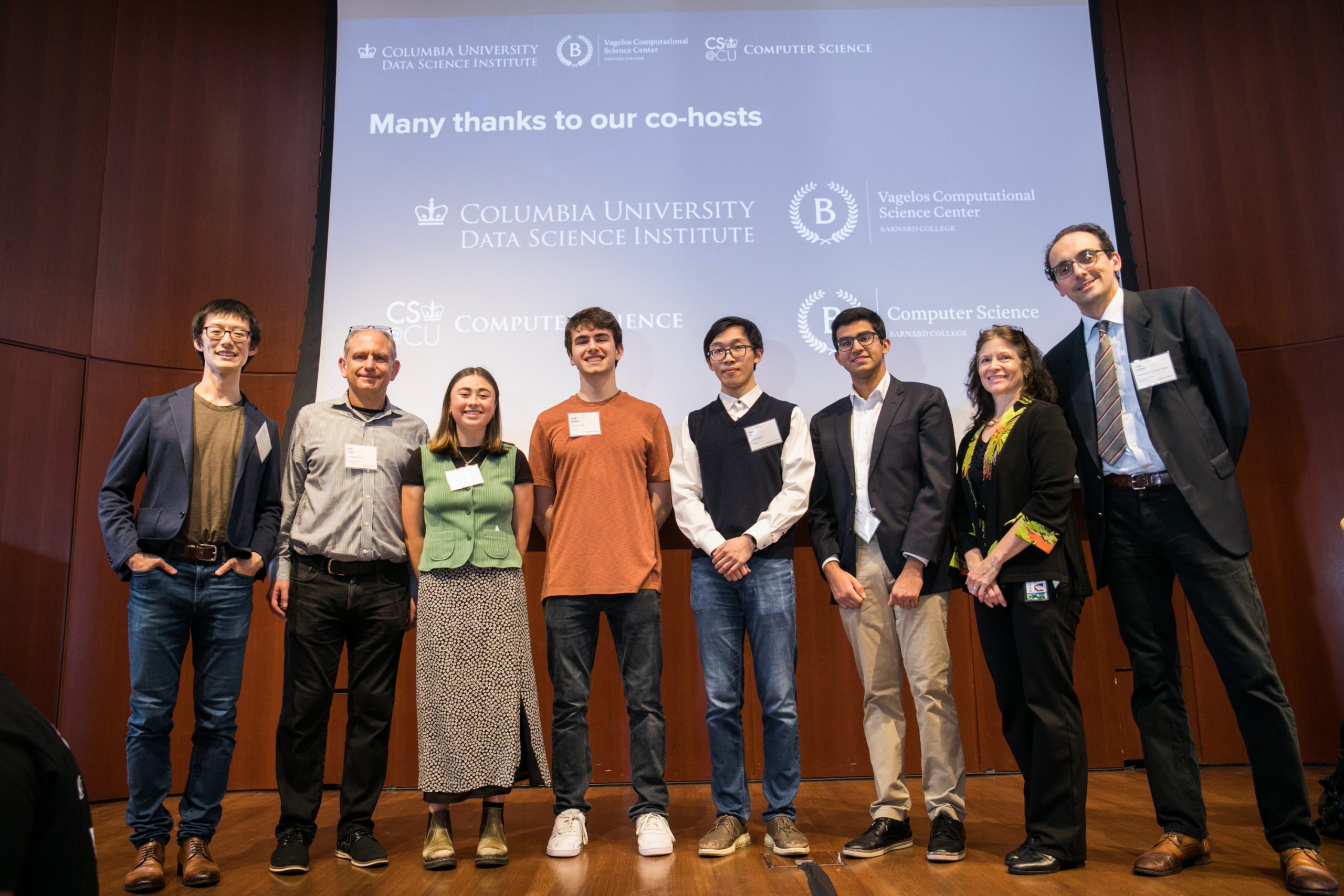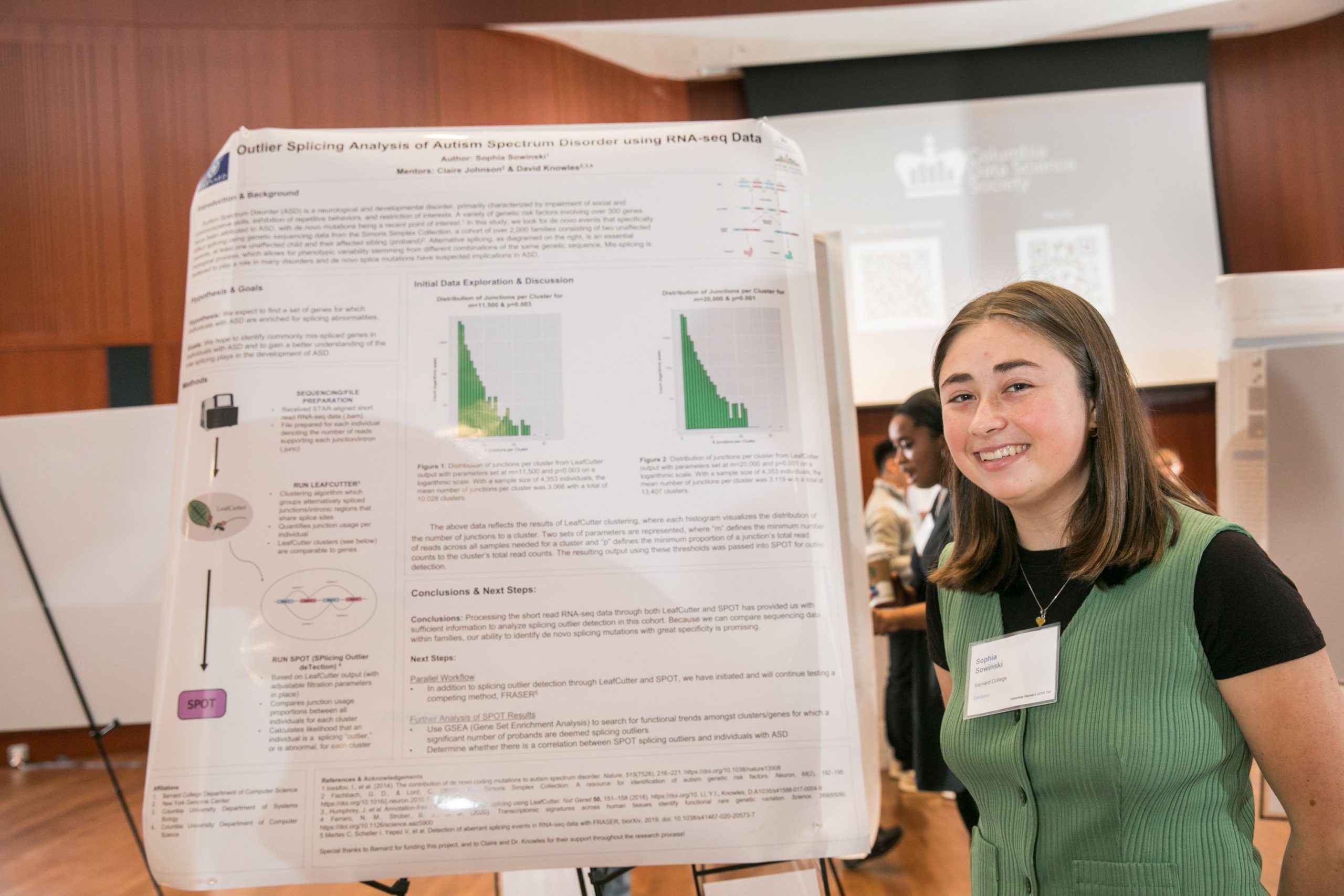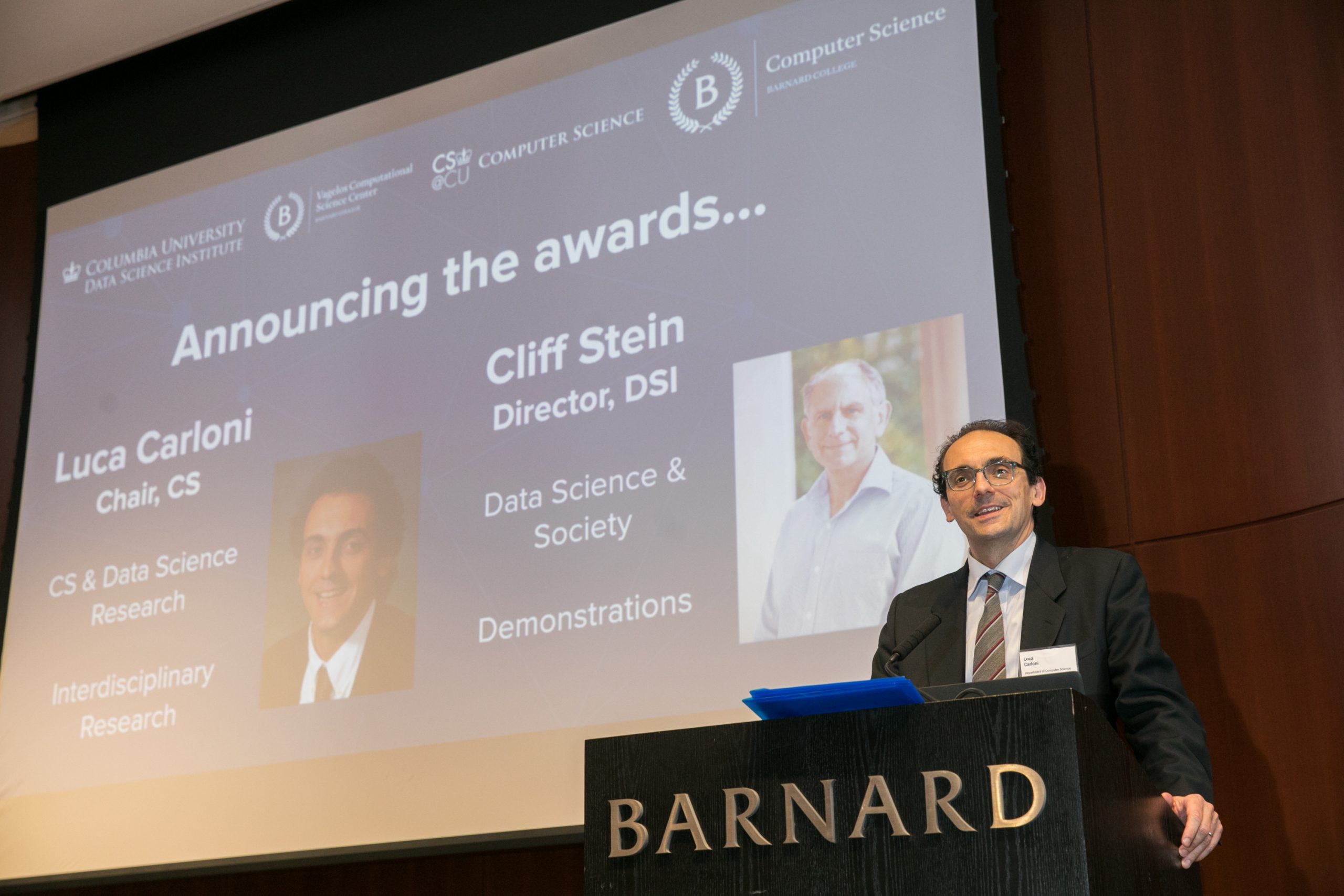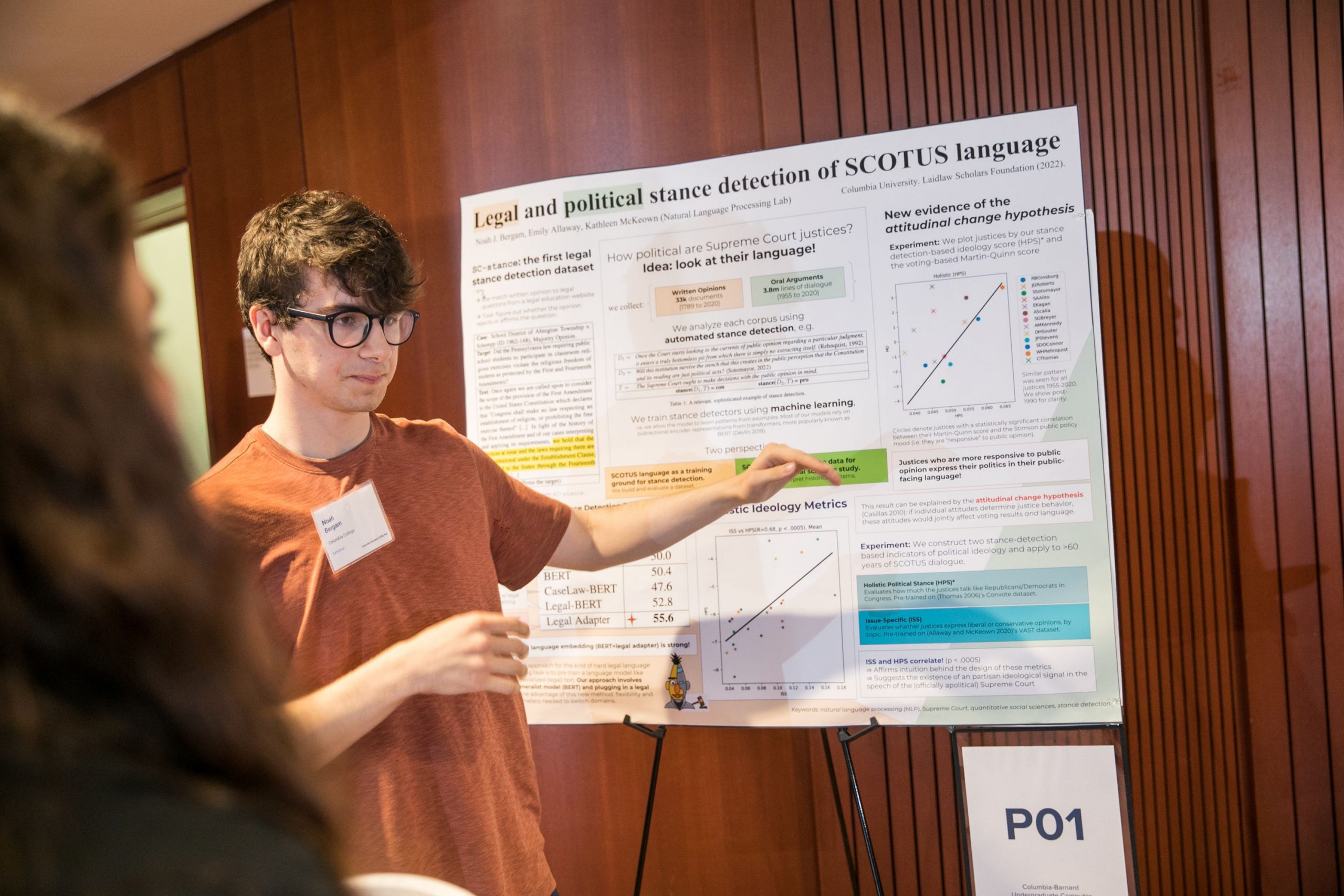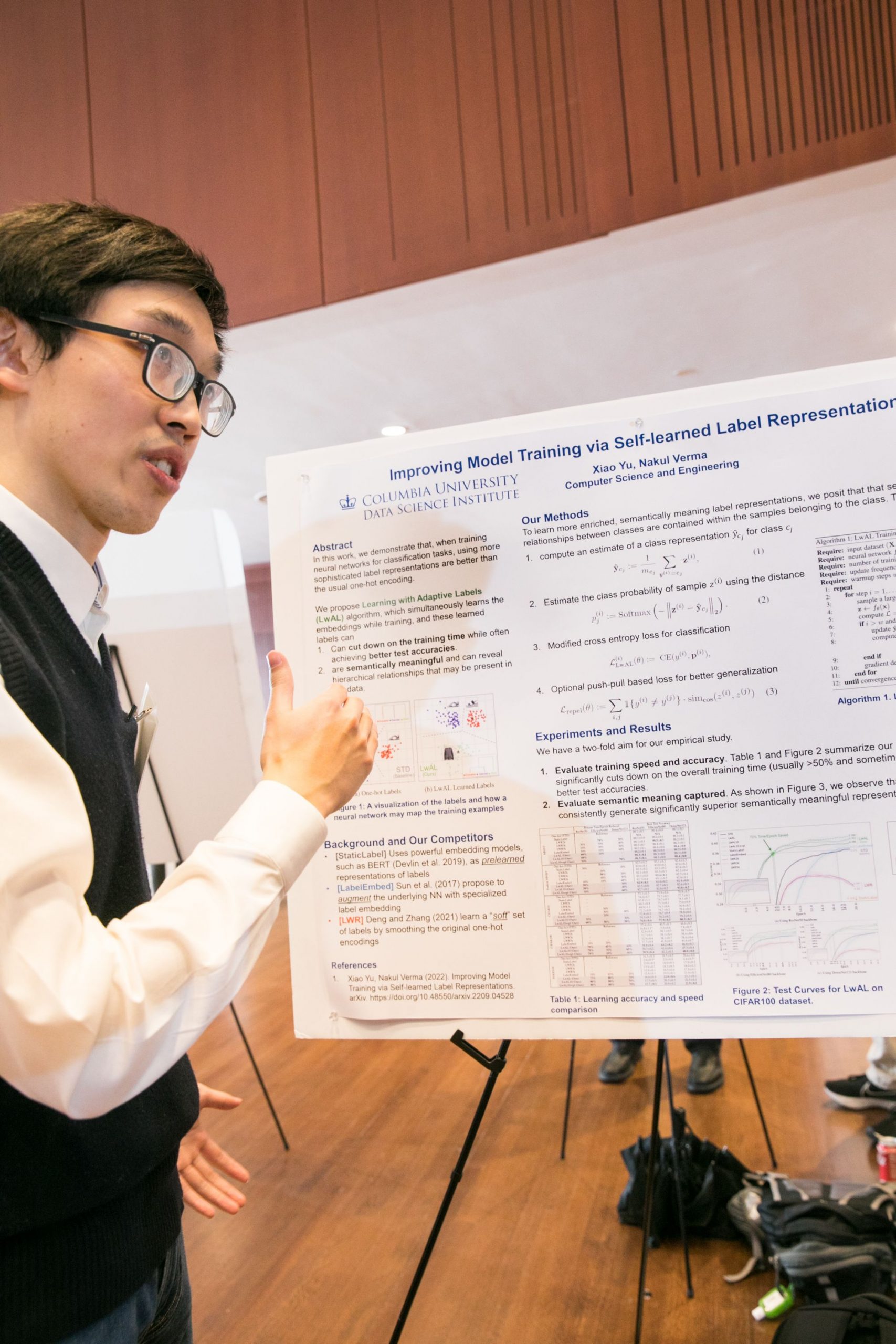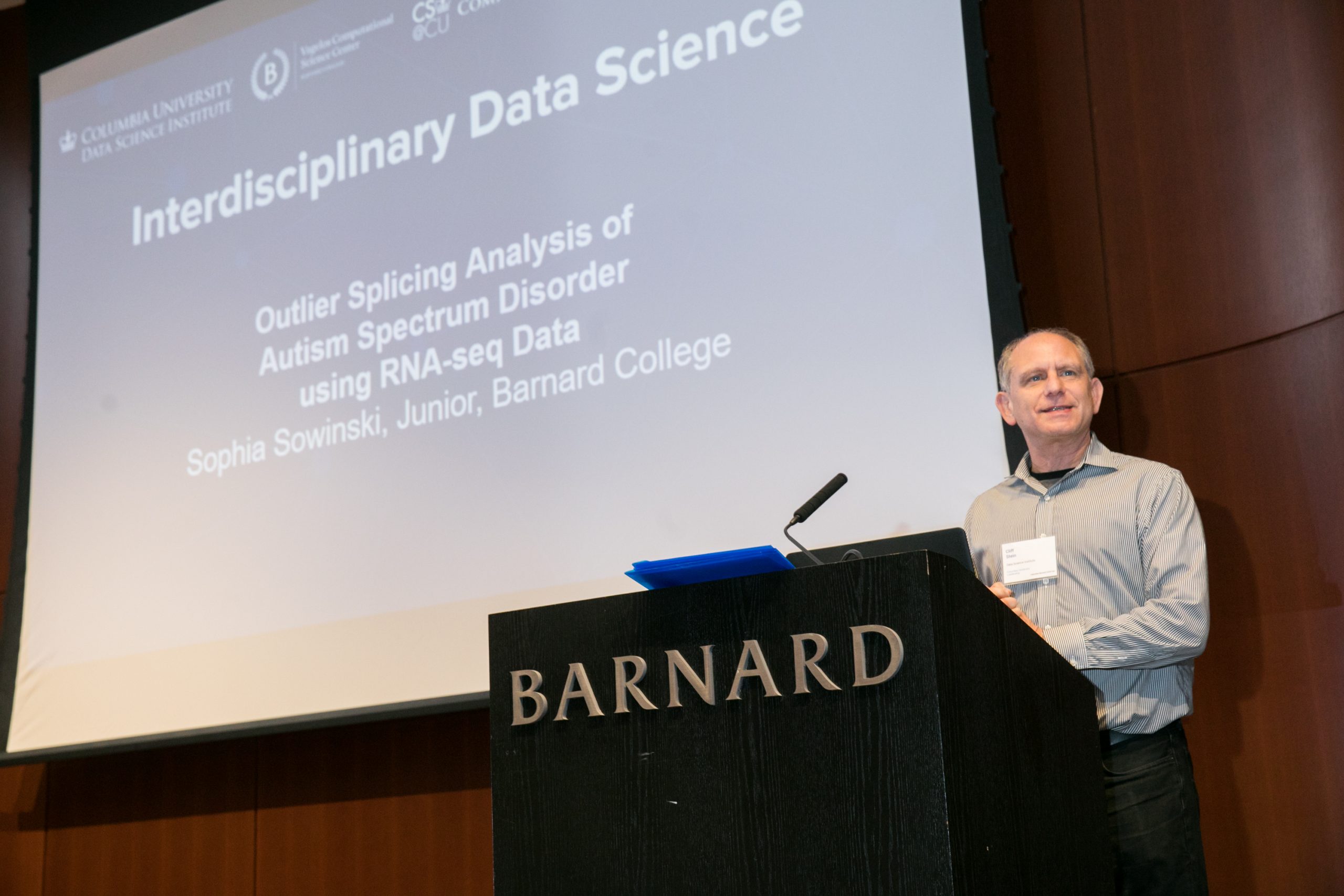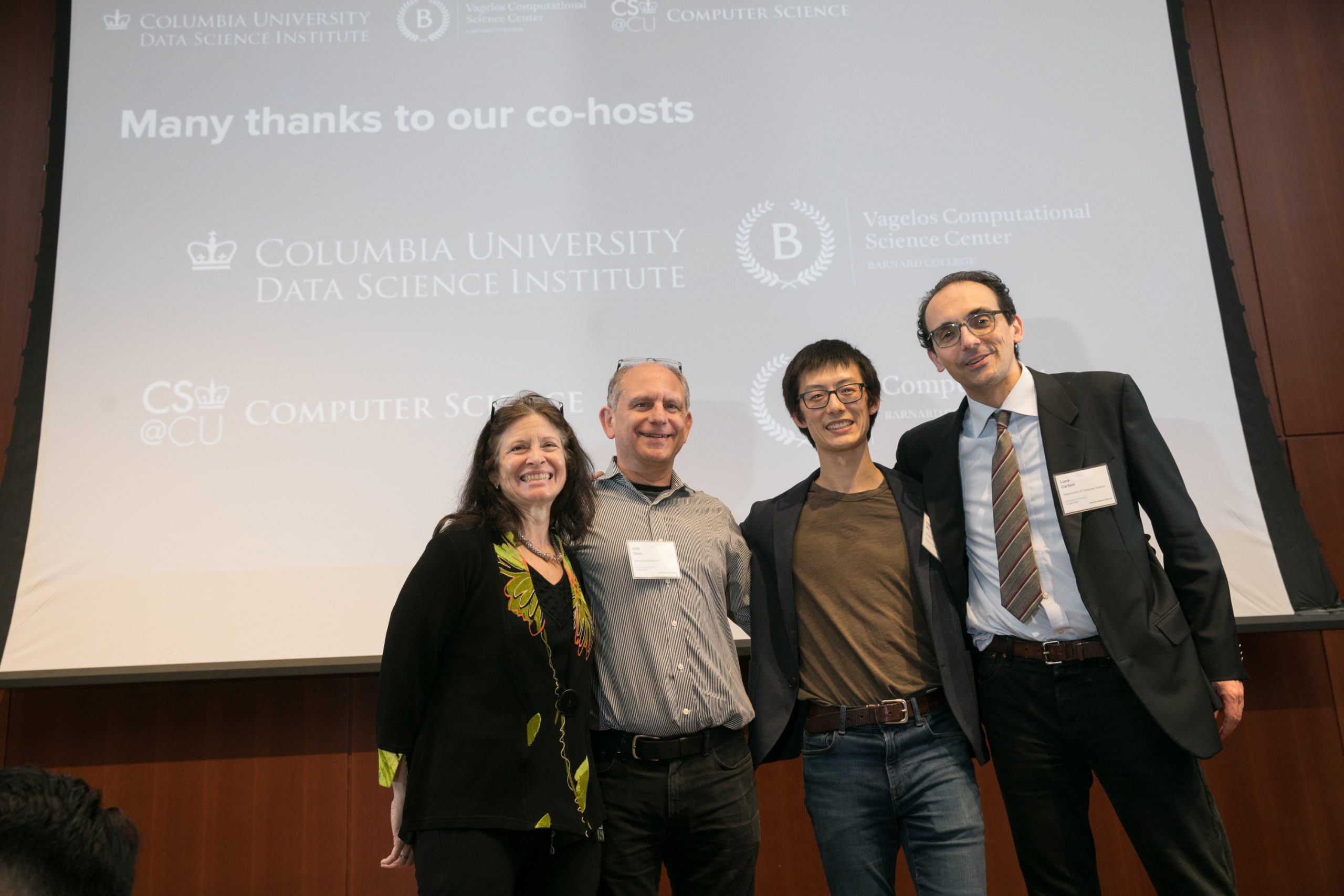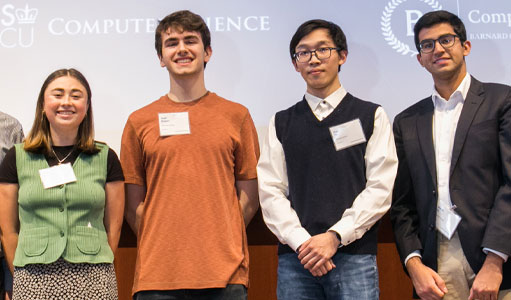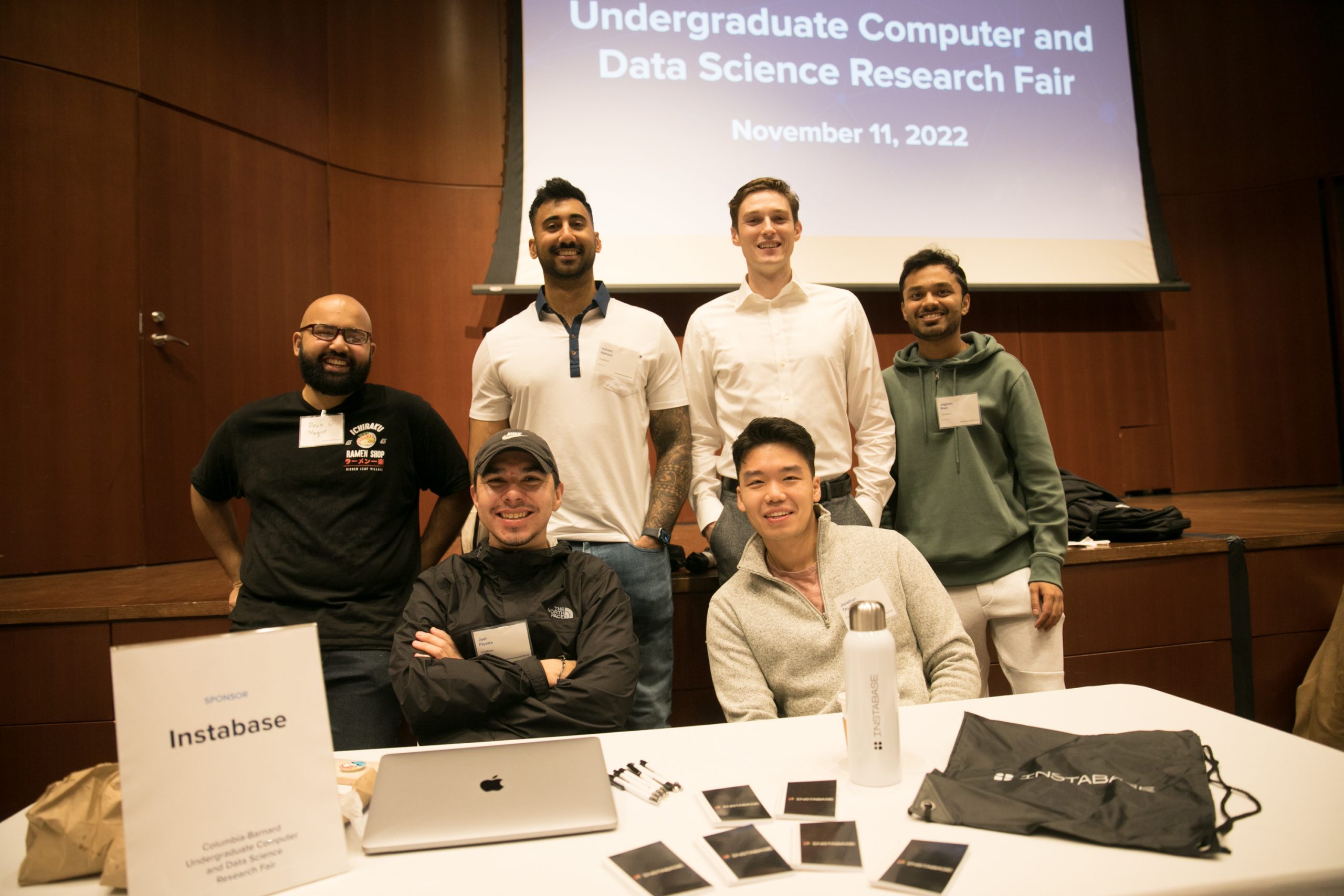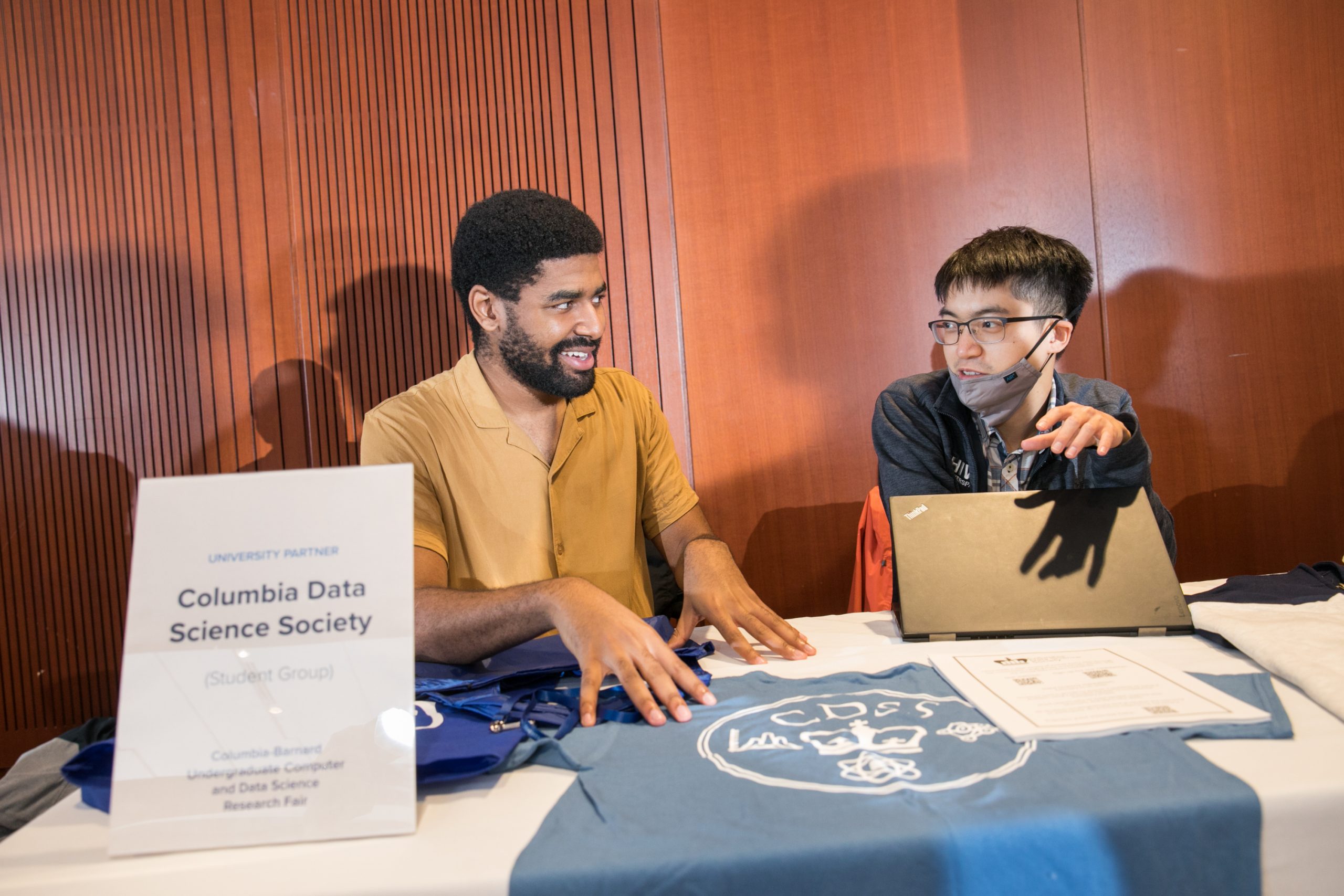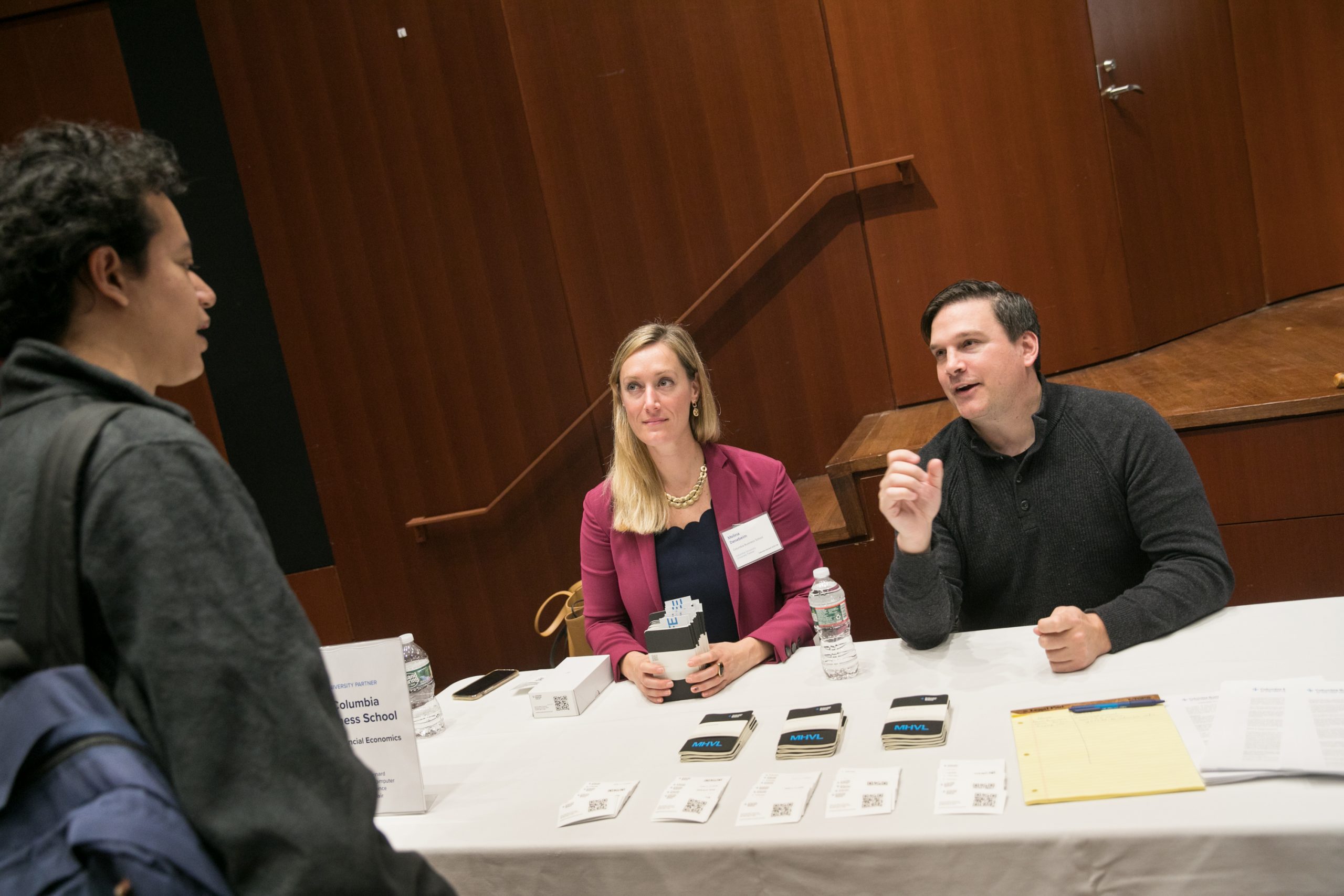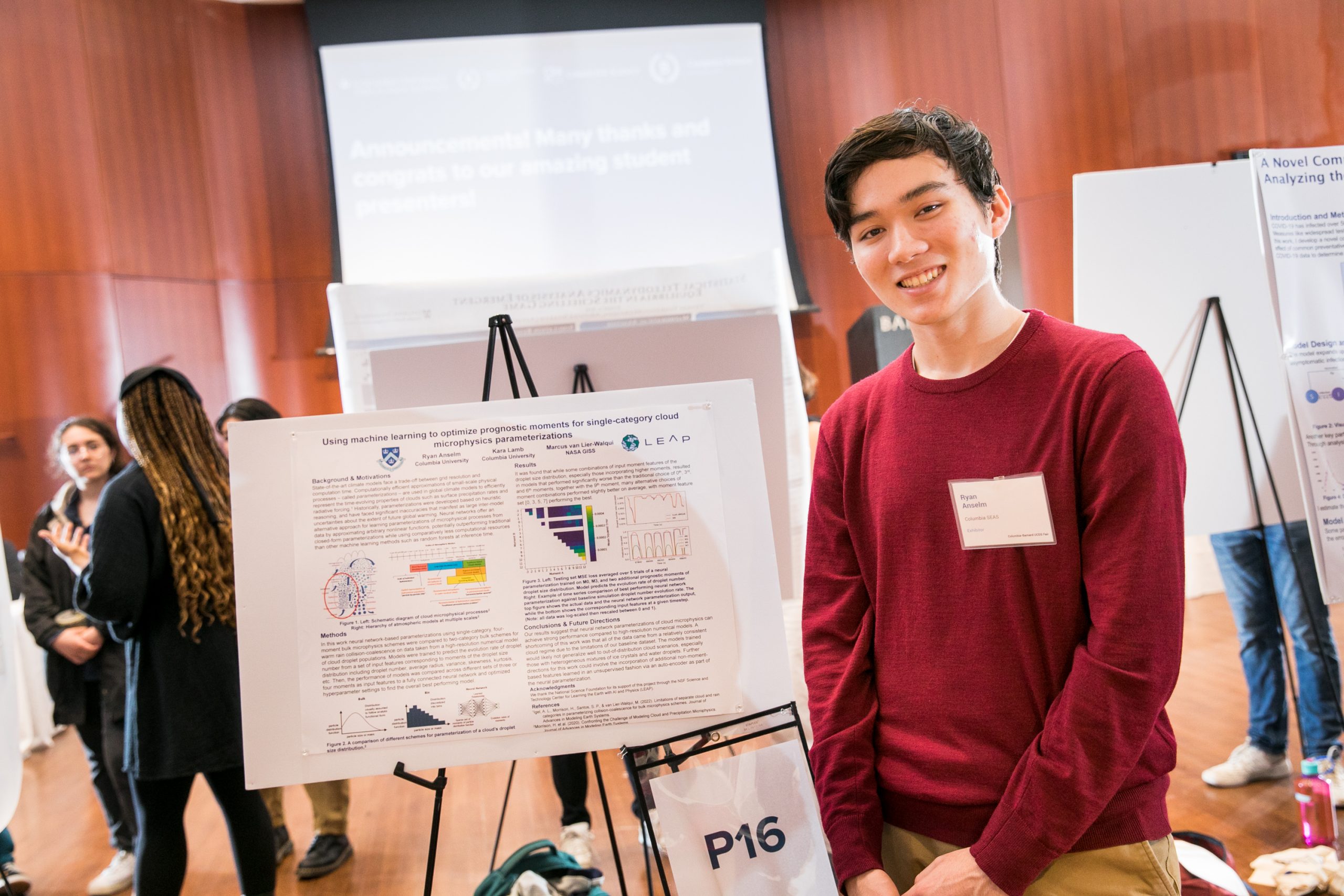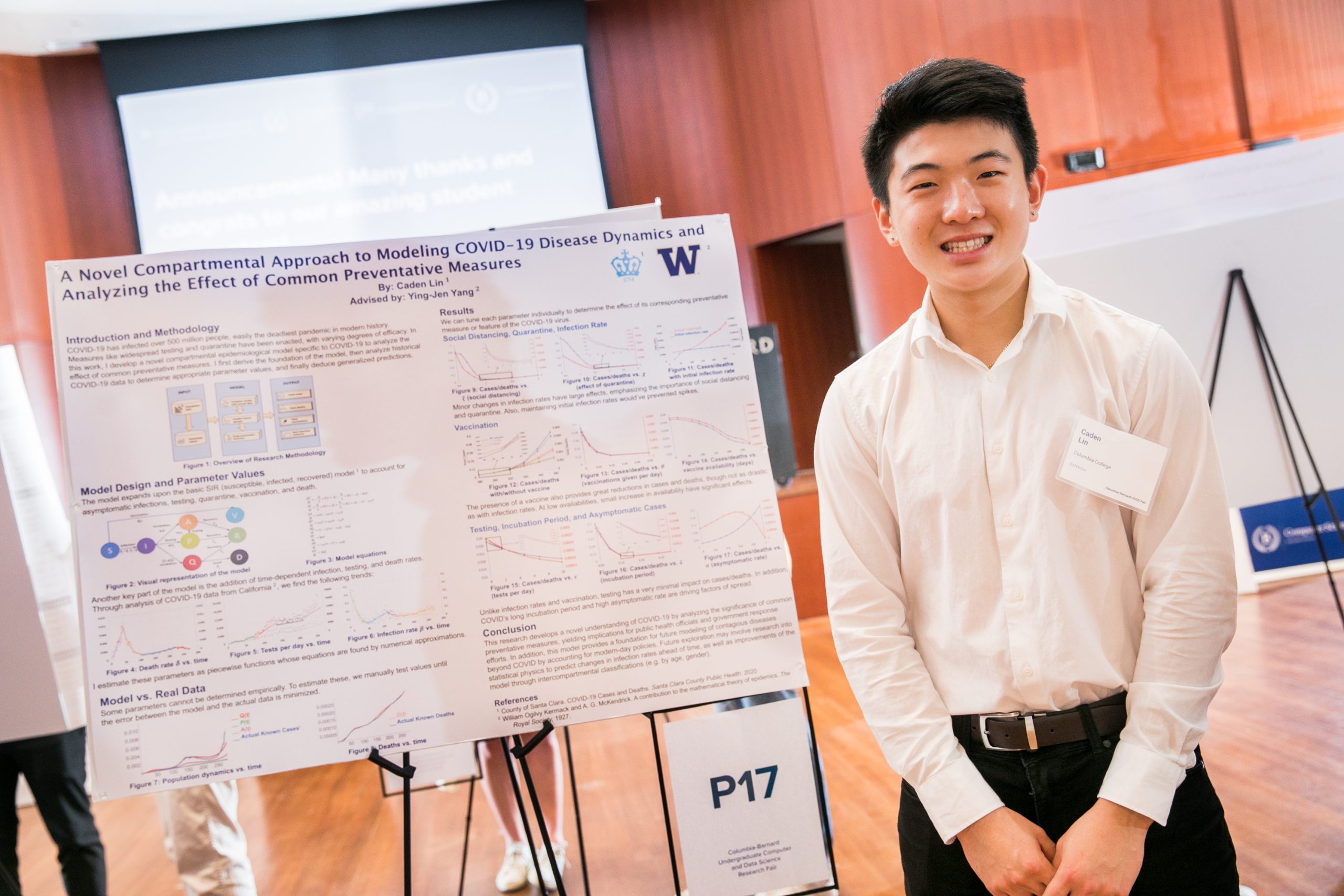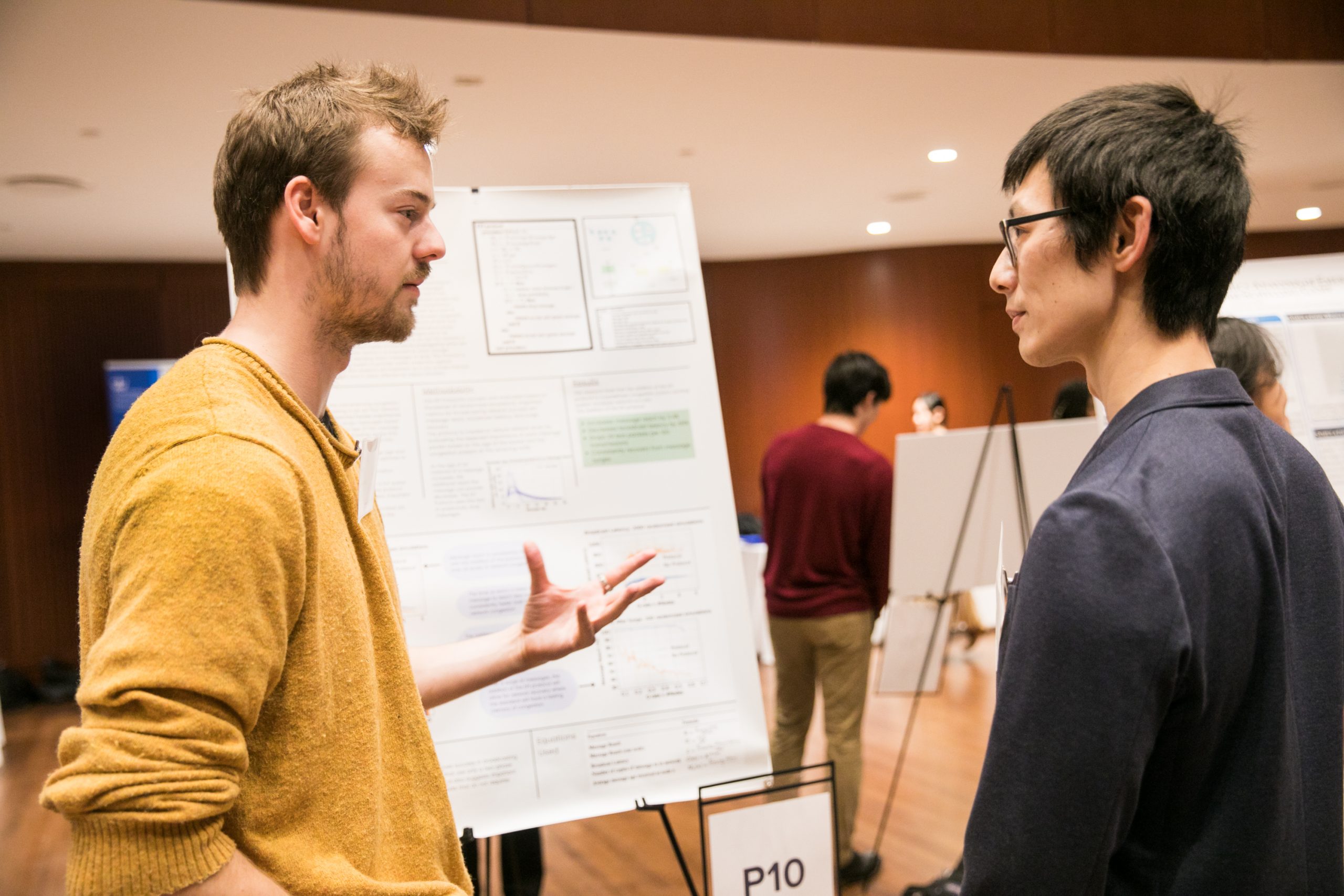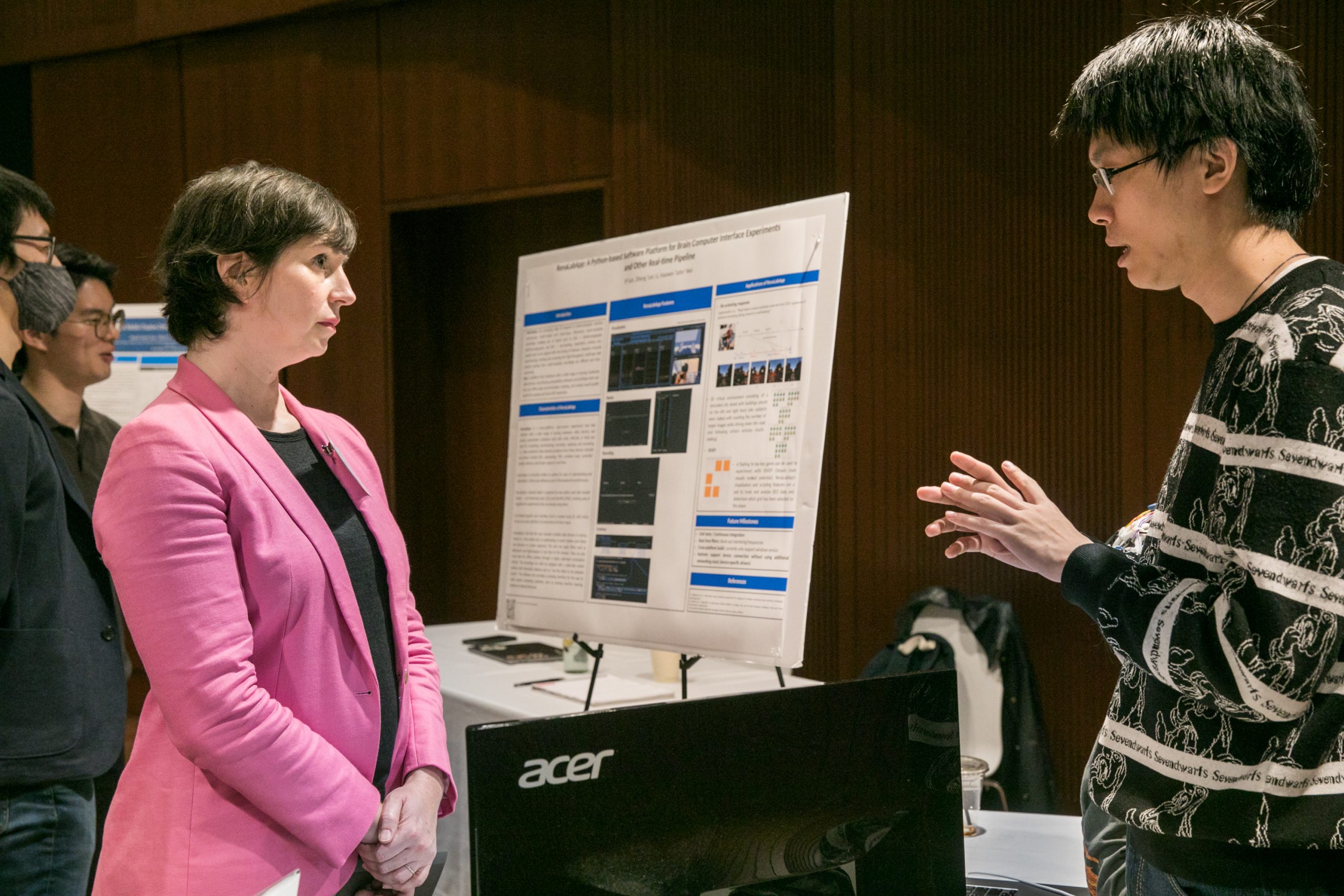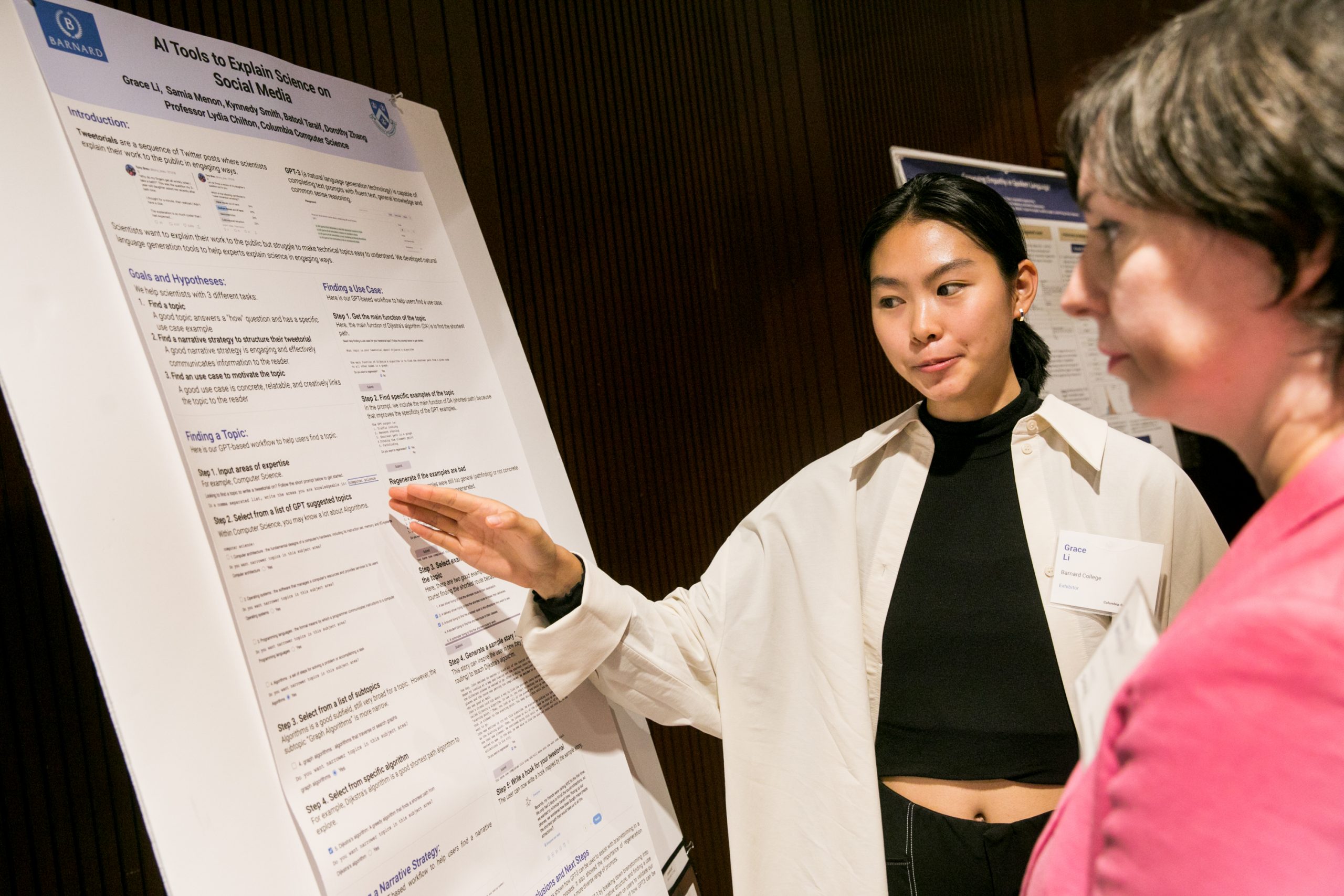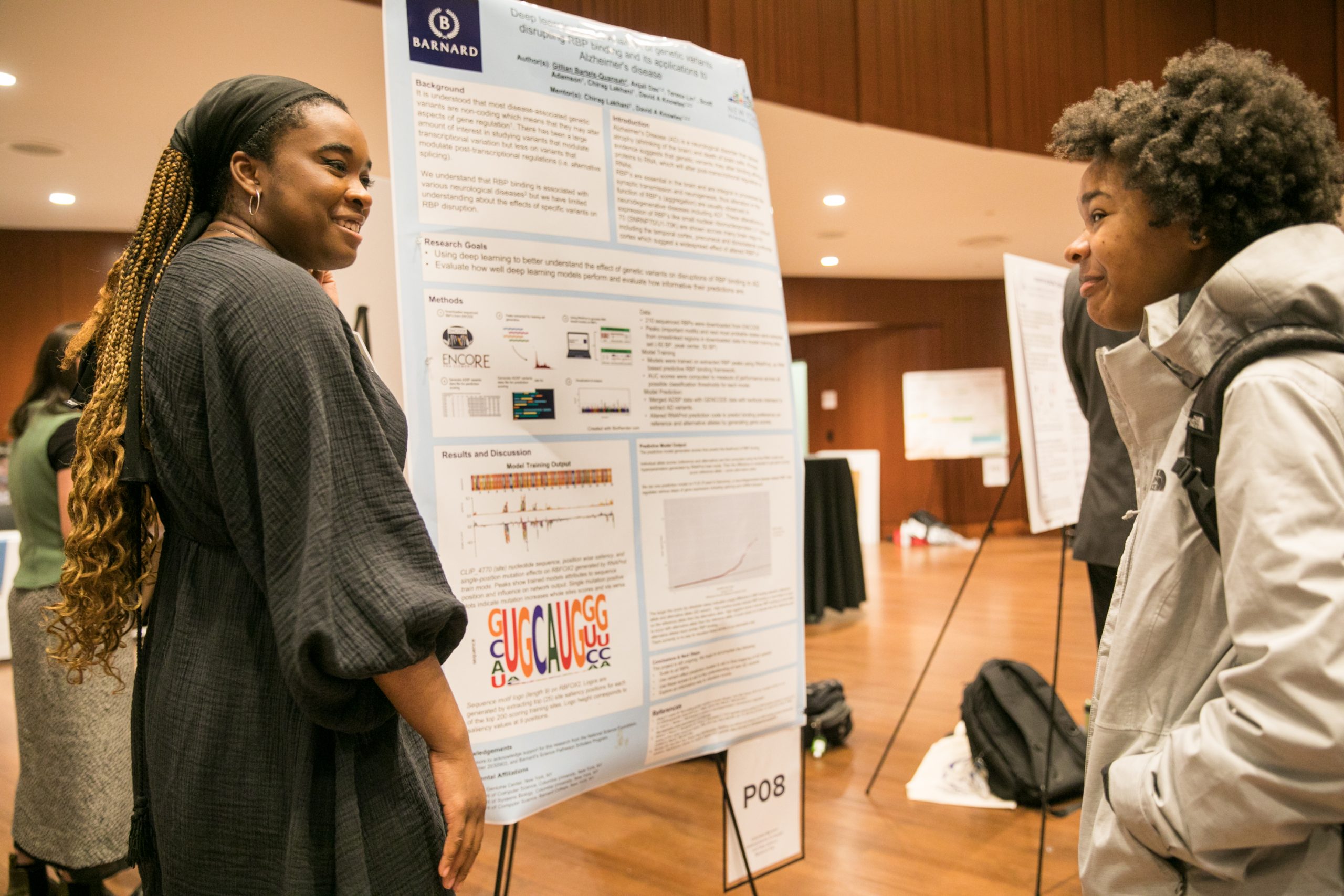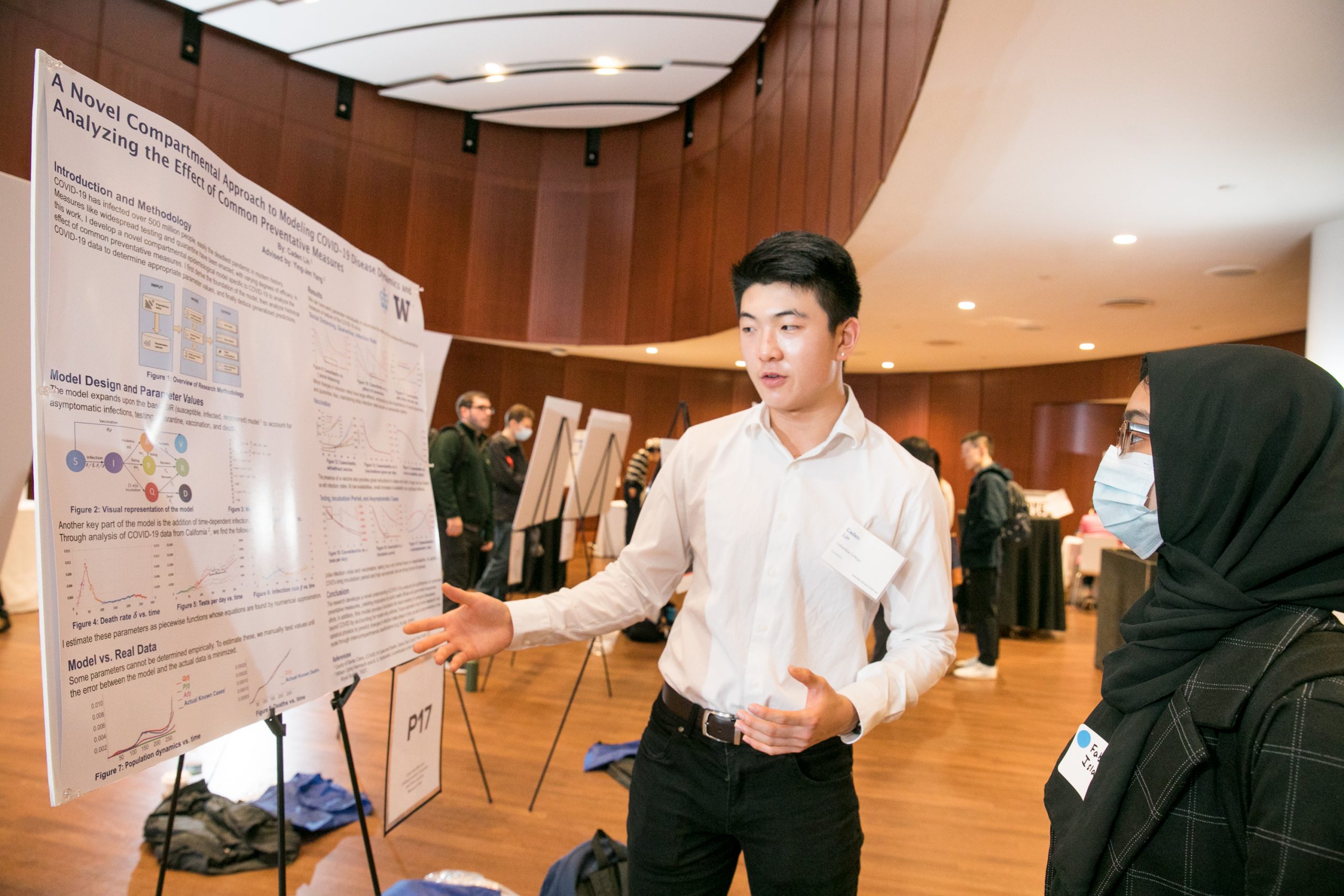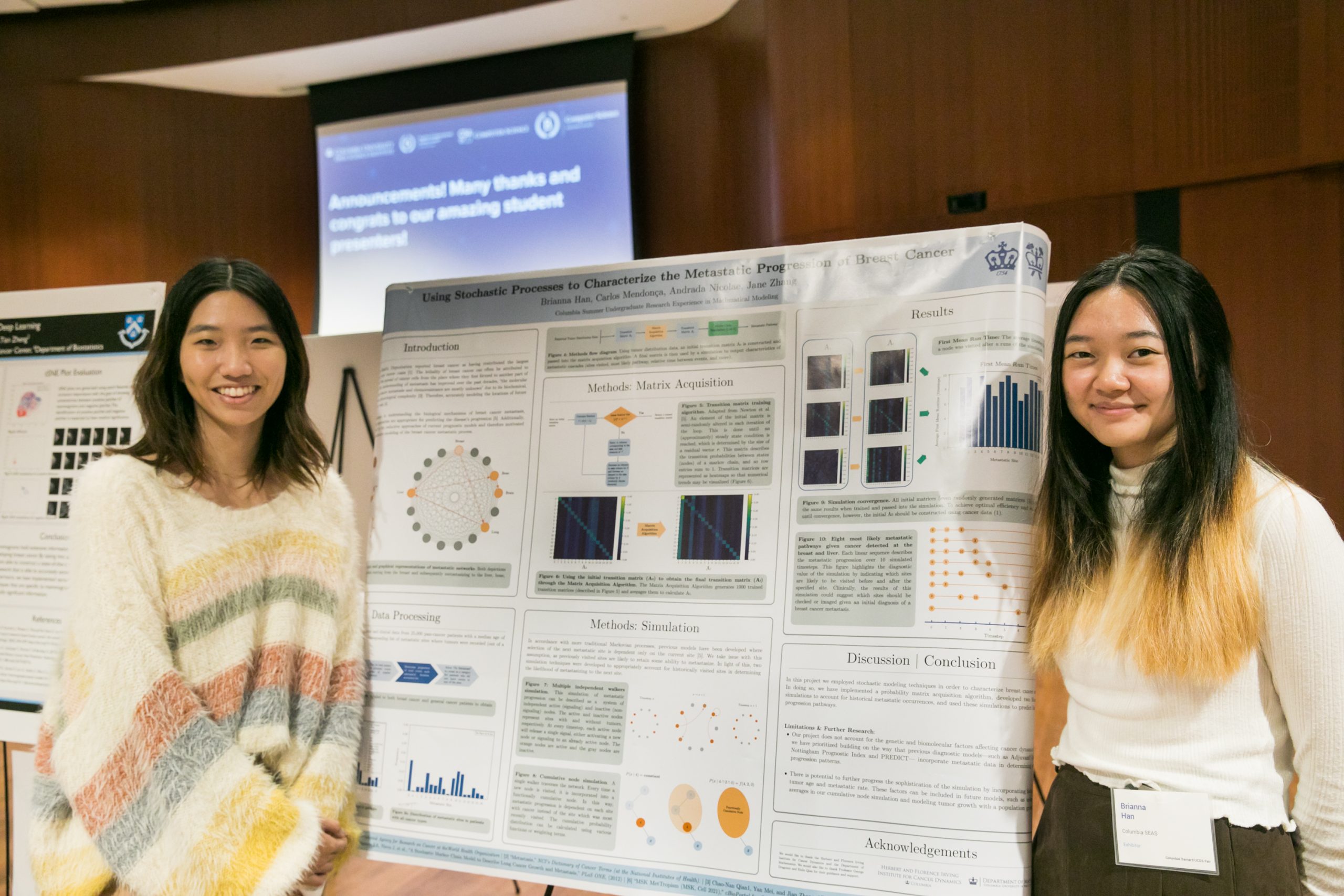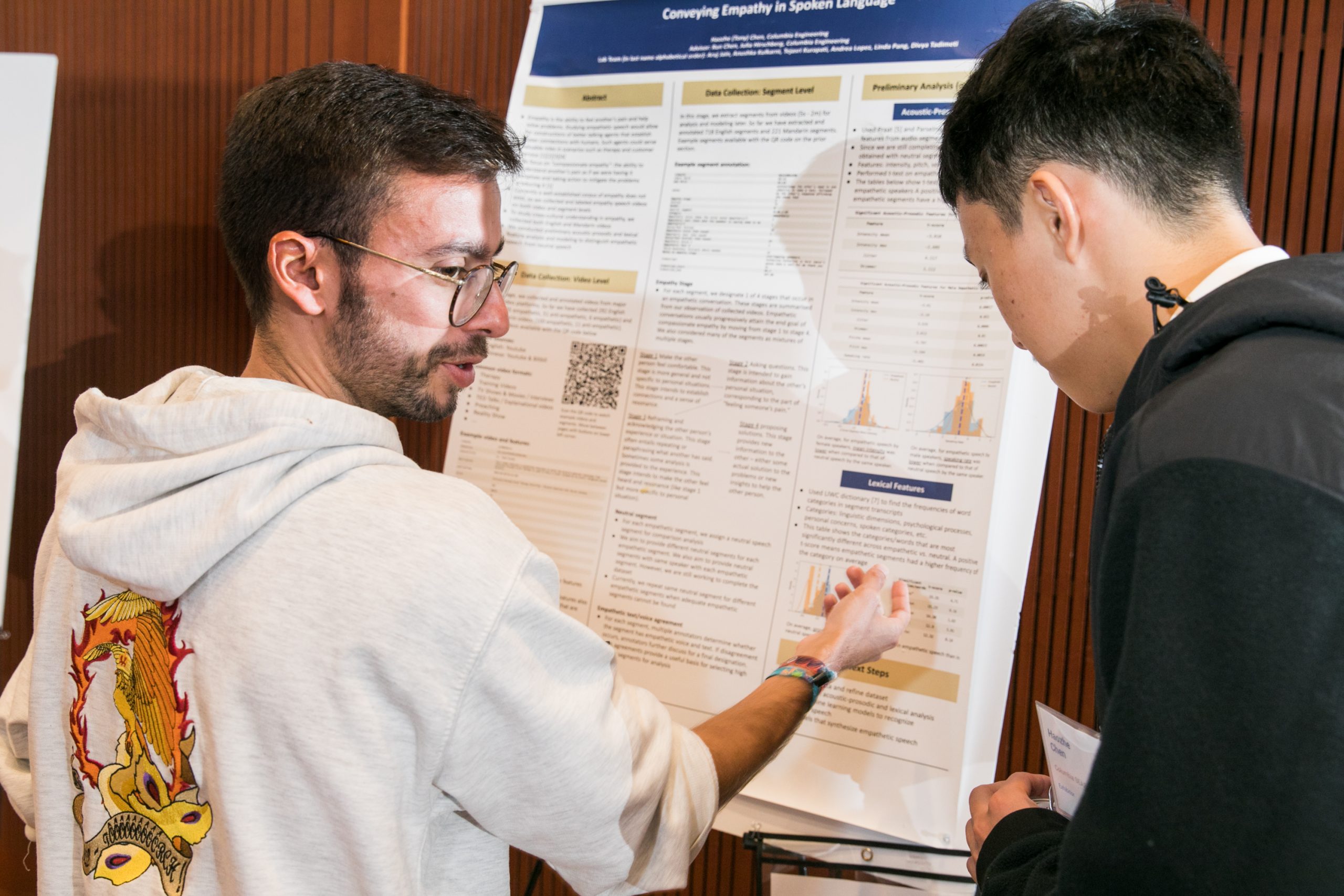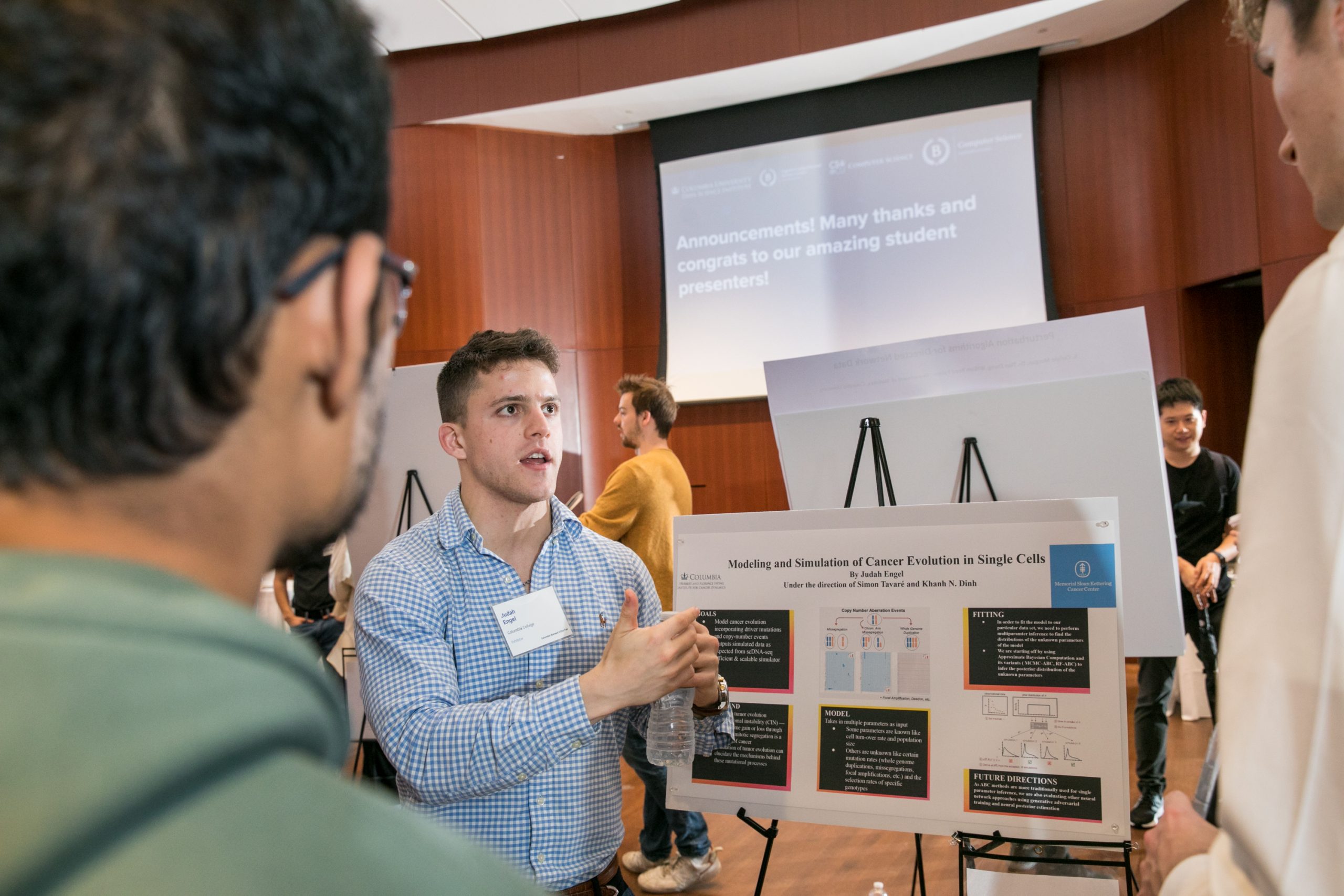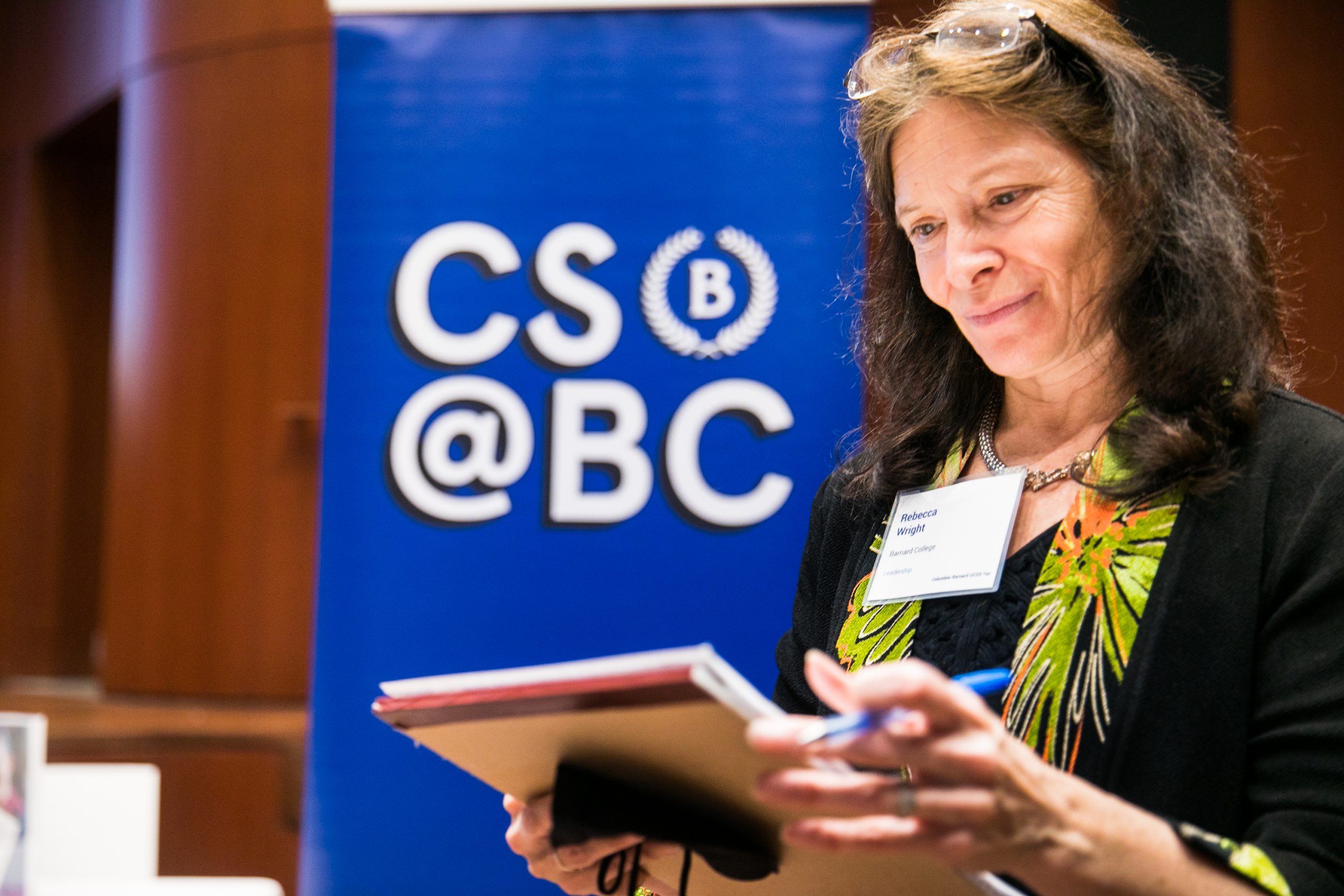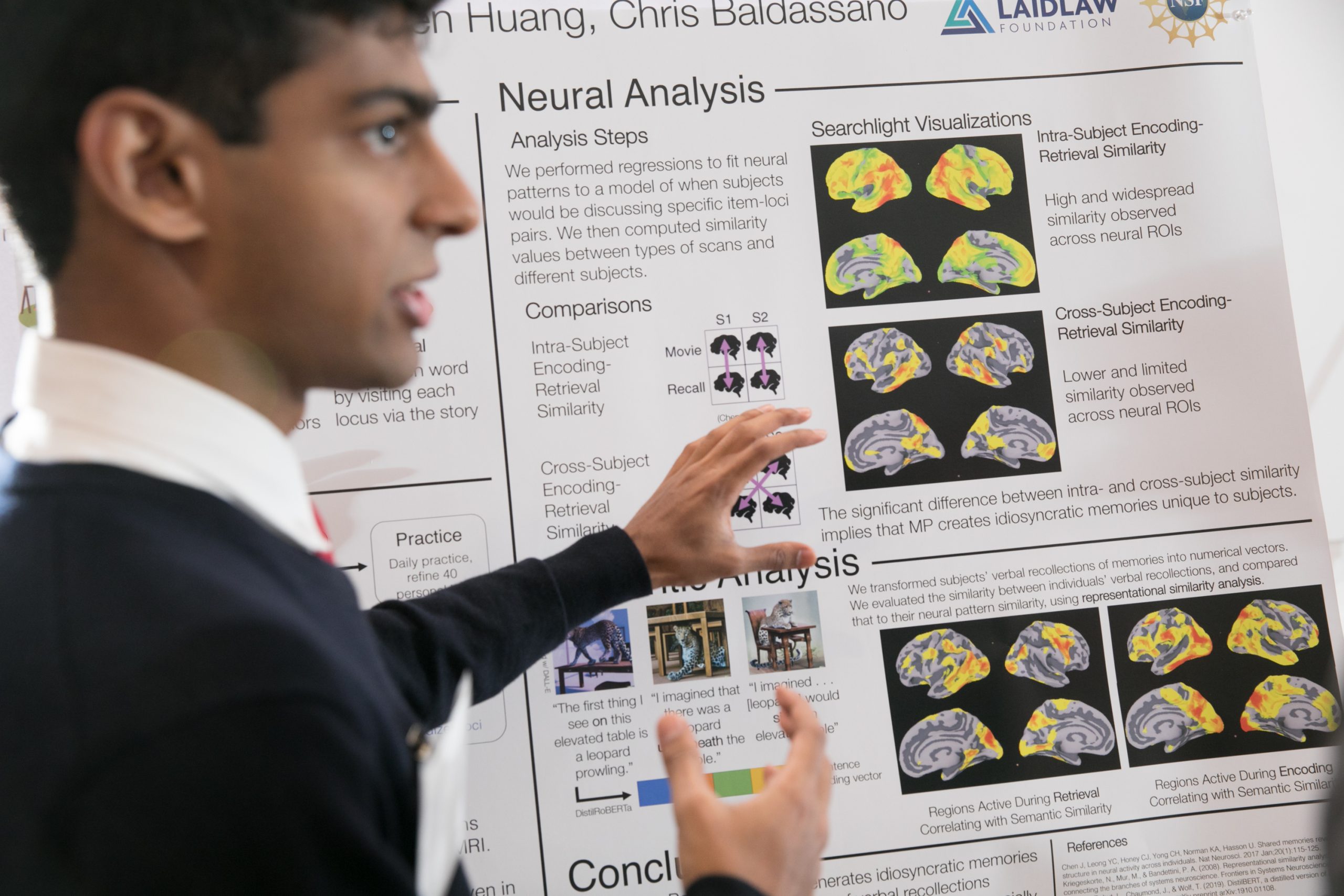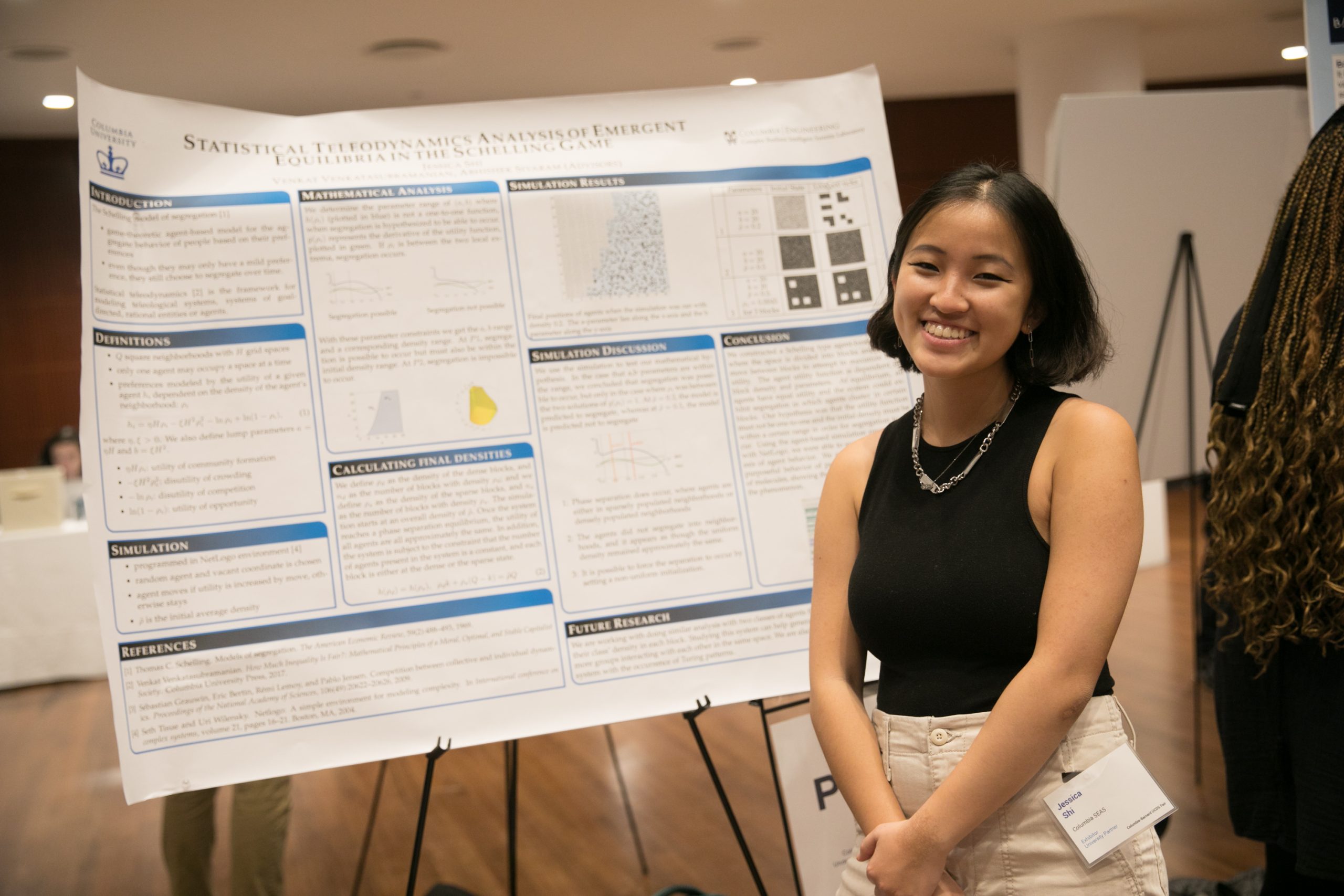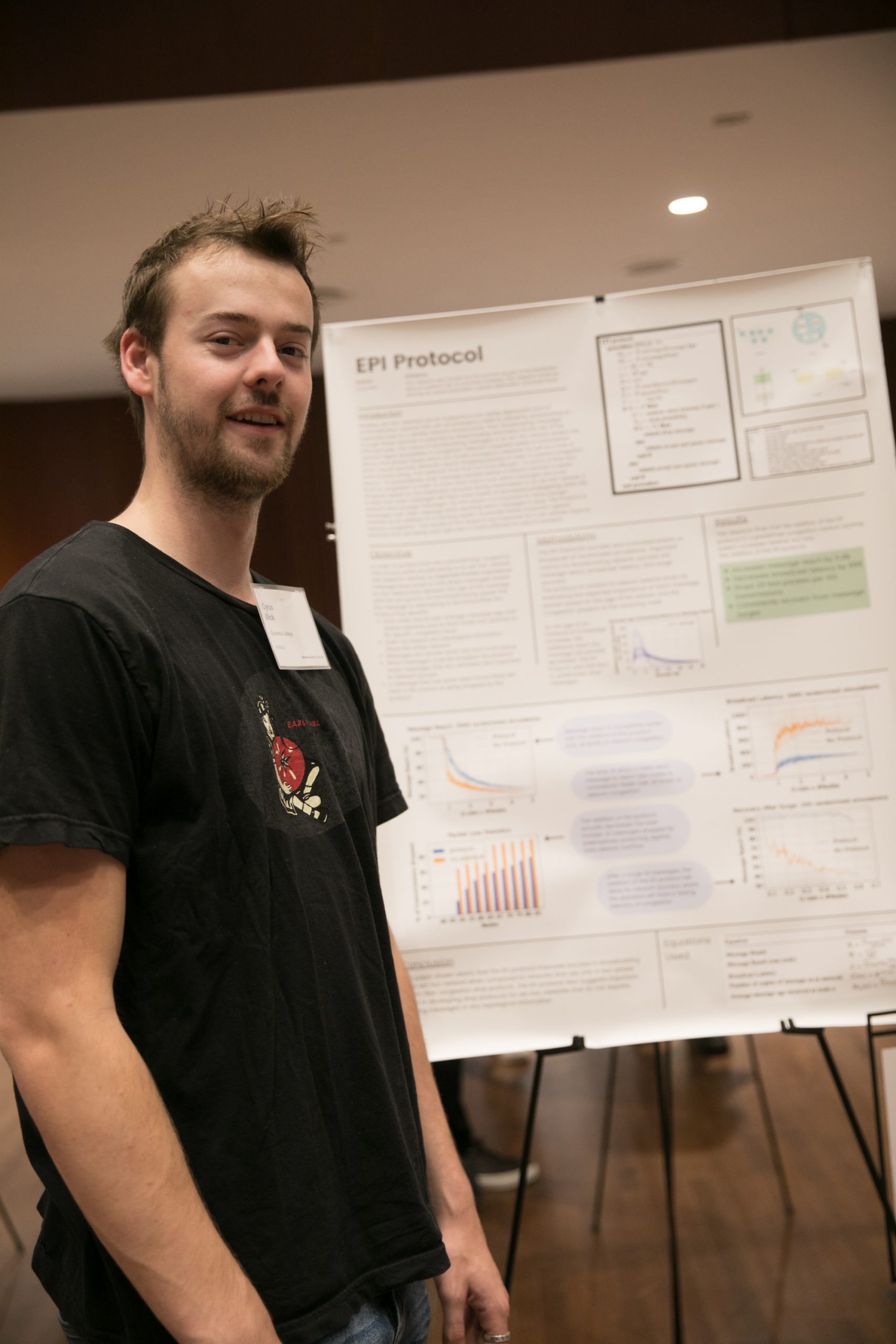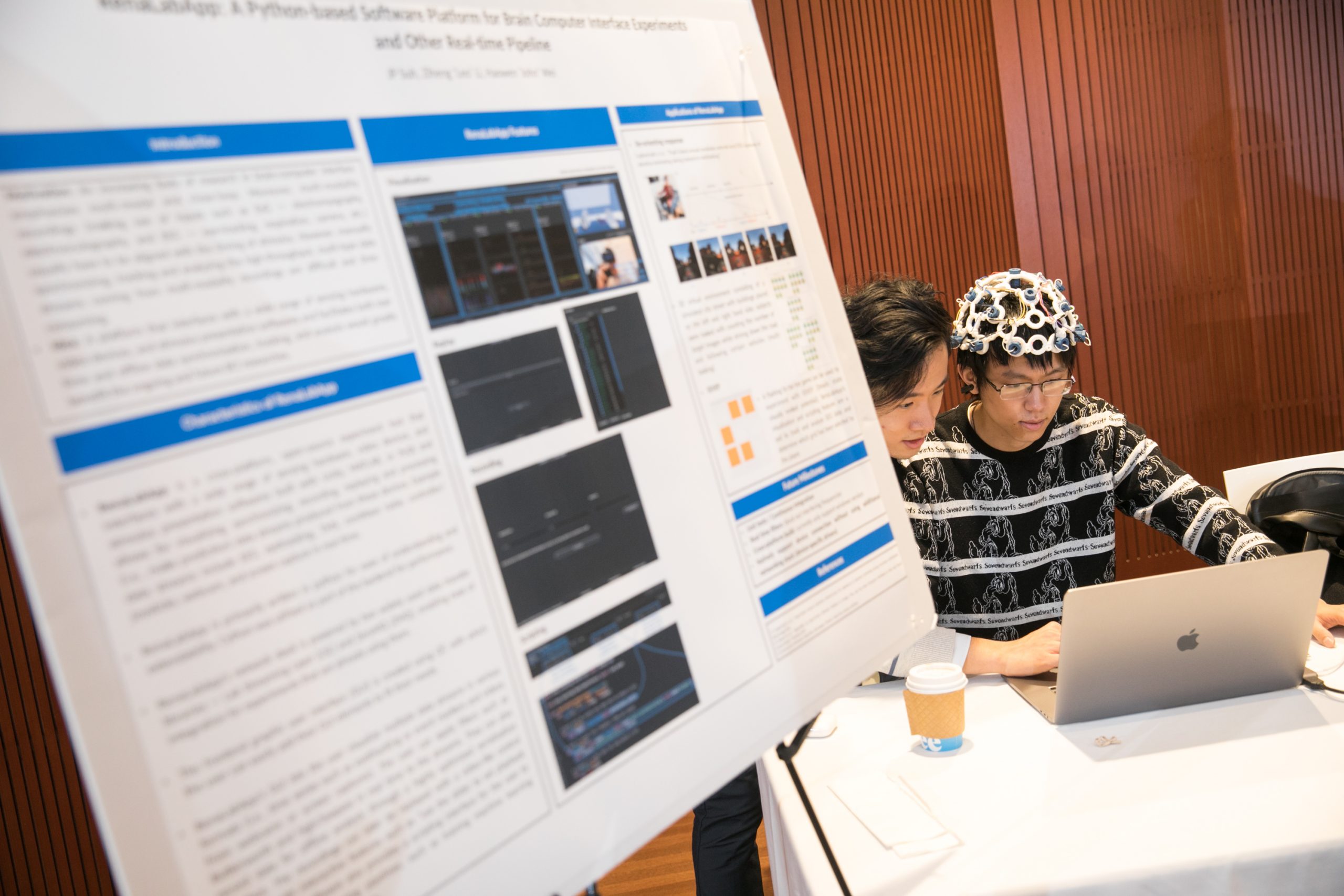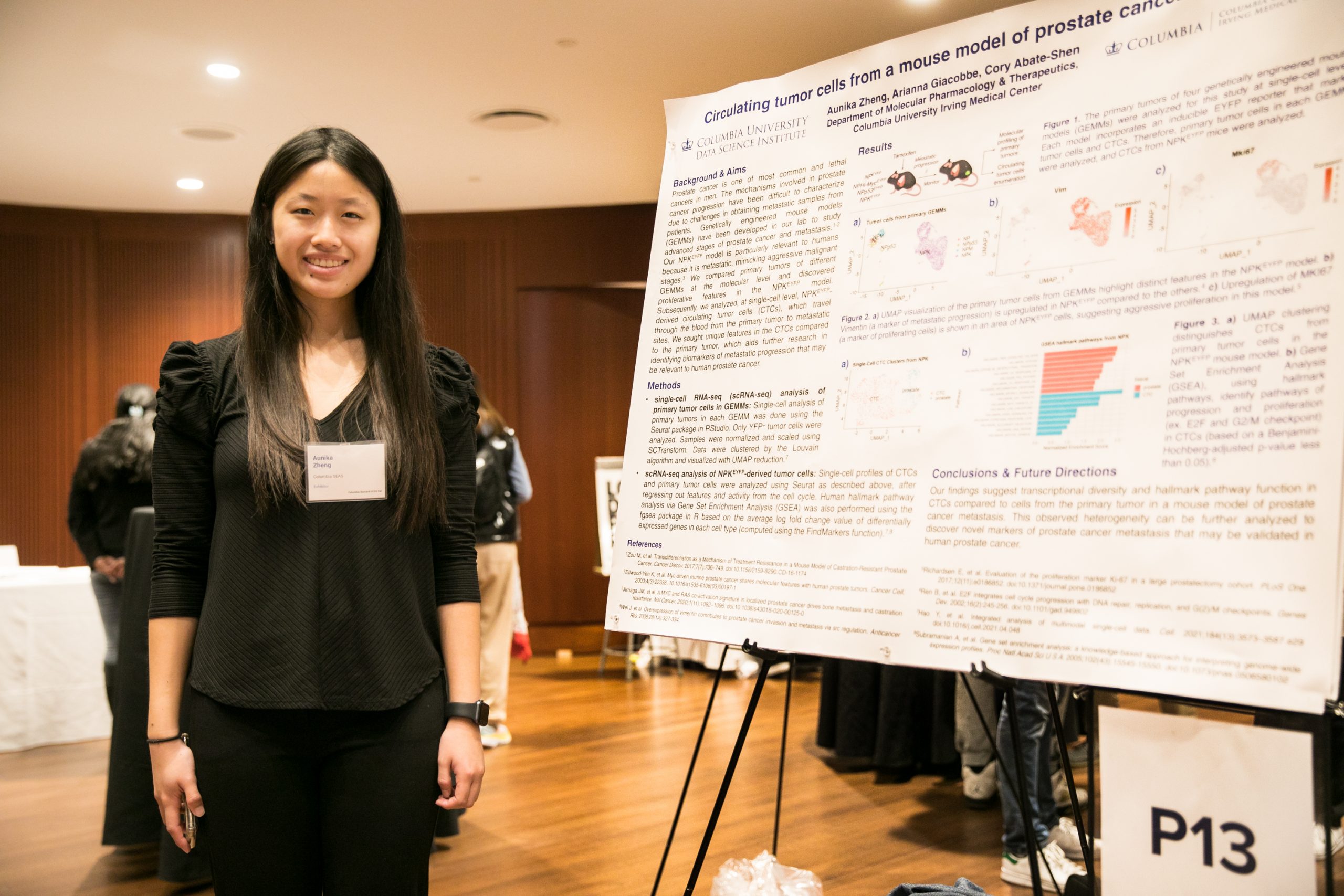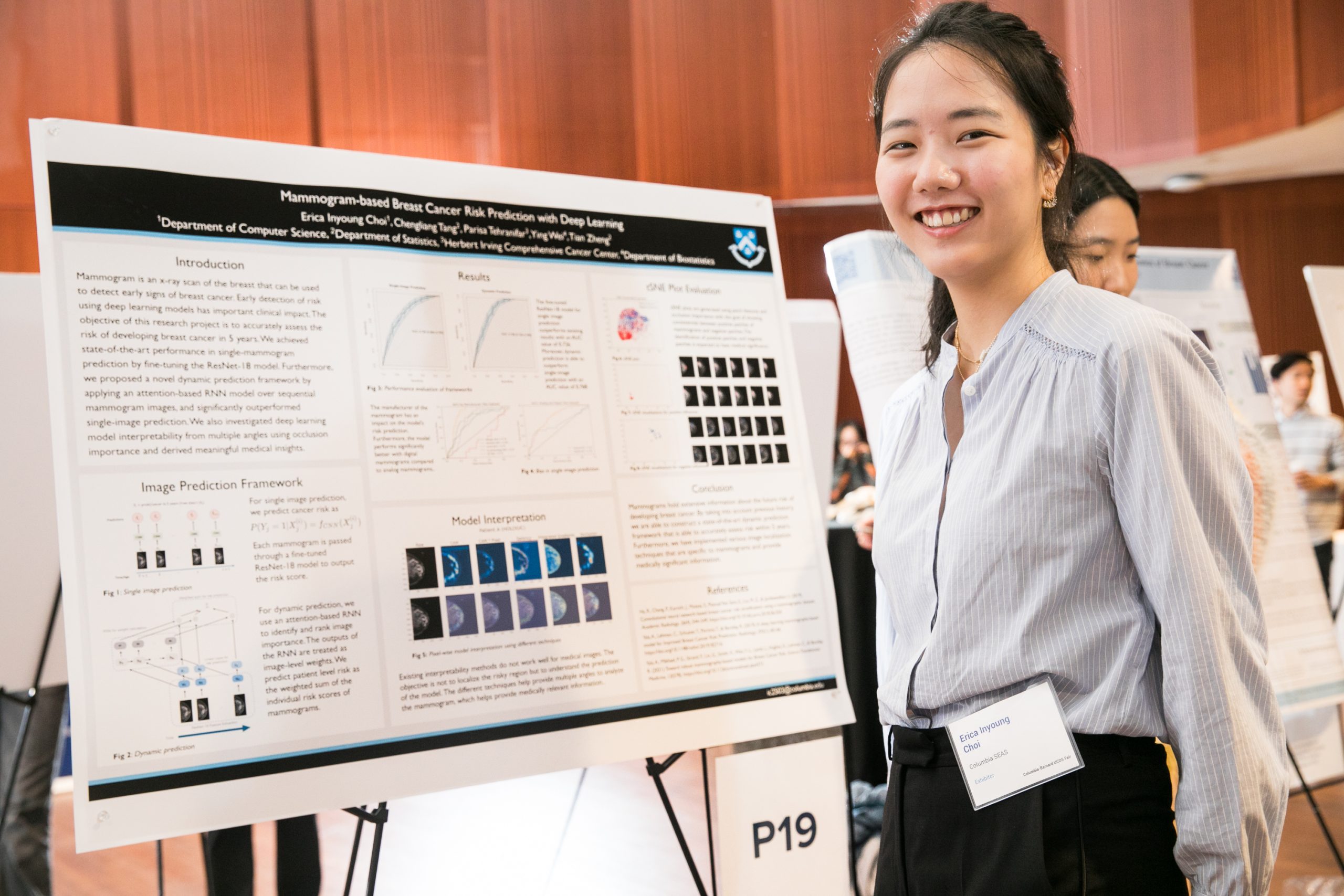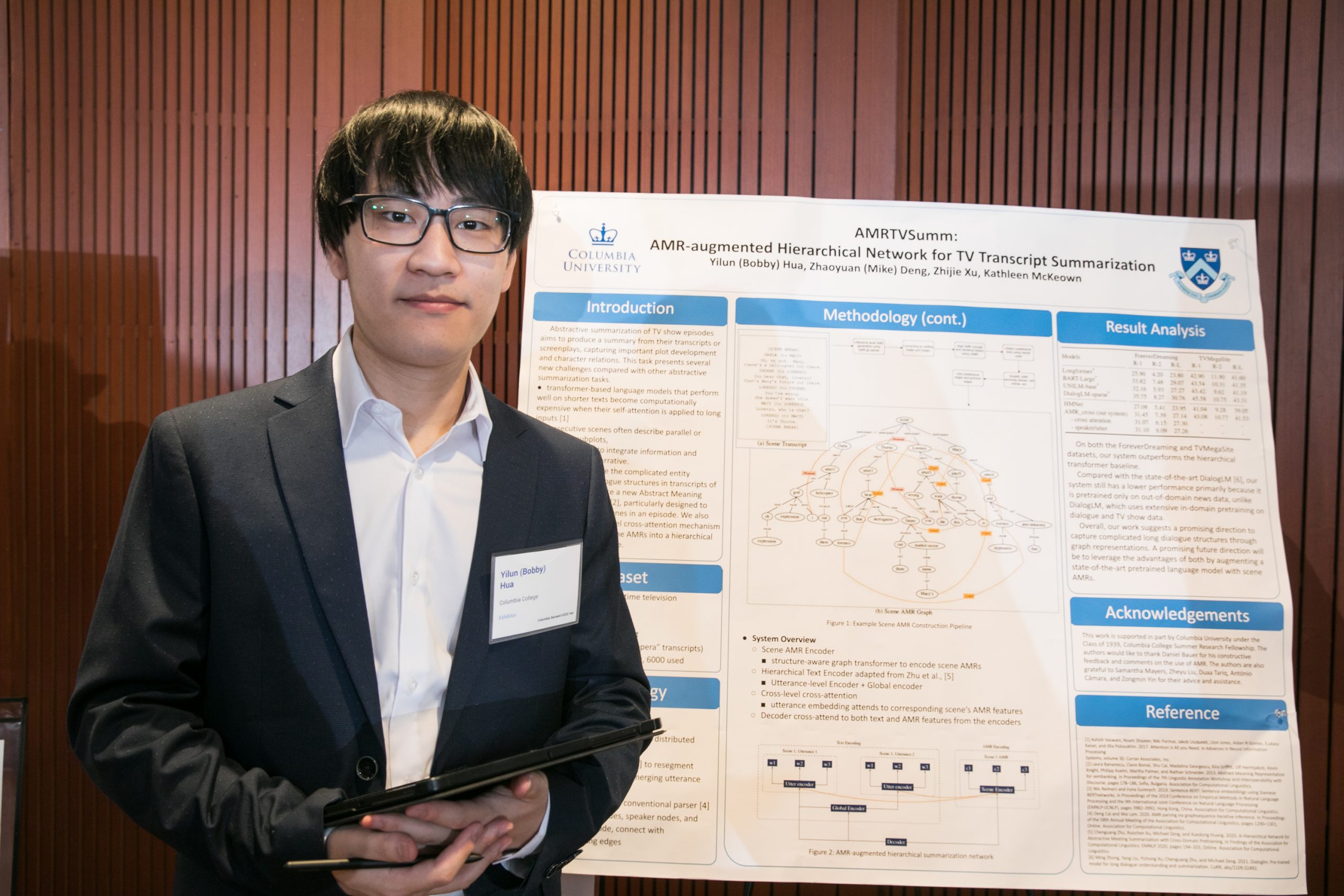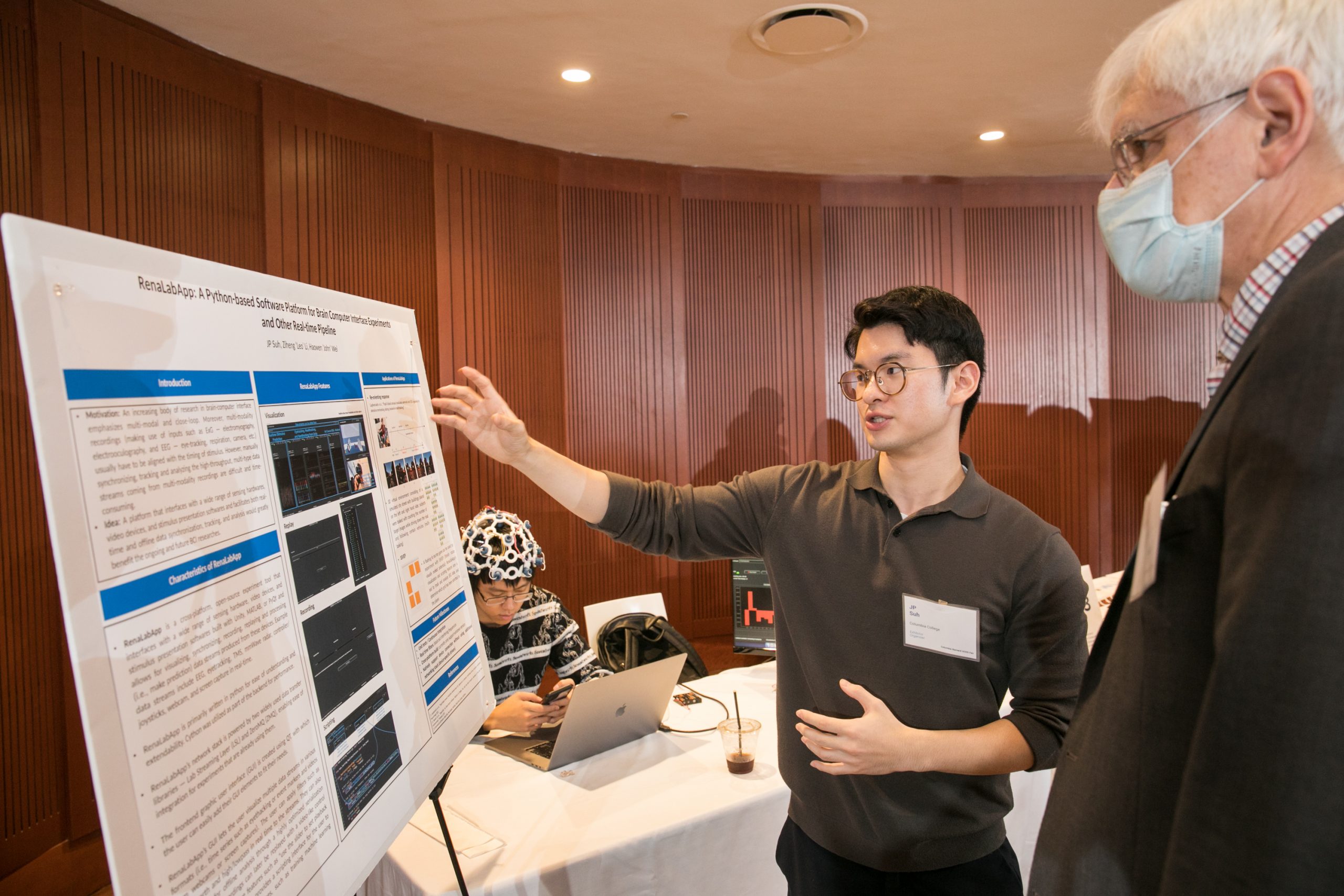The inaugural fair gave students the opportunity to take their research from paper to presentation and showcase their hard work.
The projects of the Undergraduate Computer and Data Science Research Fair fell under the themes of Data Science and Society, Interdisciplinary Data Science Applications, Data Science and Computer Science Research. Posters and demonstrations were proudly hosted by twenty-five students from SEAS, Barnard College, Columbia College, and the School of General Studies.
CS Chair Luca Carloni and Clifford Stein, Interim Director of the Data Science Institute, issued the four awards, including best overall and best in each of the three tracks.
CS & Data Science Research
Improving Model Training via Self-learned Label Representations
Xiao Yu, Senior, SEAS
Interdisciplinary Data Science
Outlier Splicing Analysis of Autism Spectrum Disorder using RNA-seq Data
Sophia Sowinski, Junior, Barnard College
Data Science & Society
Legal and Political Stance Detection of SCOTUS Language
Noah Bergam, Sophomore, Columbia College
Demonstrations
Machine Learning assisted Age-Related Macular Degeneration Detection using Indirect Fundoscopy and iOS Device
Manan Vij, Freshman, Columbia College
The fair was organized by the Data, Media and Society Center at the Data Science Institute, Columbia University; the Barnard Program in Computer Science and the Vagelos Computational Science Center; and the Department of Computer Science at Columbia Engineering led by Eugene Wu, Susan McGregor, Rebecca Wright, and Alexis Avedisian.
The Data Science Institute (DSI) at Columbia University has awarded 2020 seed grants to research teams whose projects merge data science with traditional fields to solve pressing societal problems. DSI’s Seed Funds Program supports new collaborations to forge long-term relationships among faculty in different disciplines and use data science to transform all fields across Columbia.
To put data science in context, we present phases of the data life cycle, from data generation to data interpretation. These phases transform raw bits into value for the end user. Data science is thus much more than data analysis, e.g., using techniques from machine learning and statistics; extracting this value takes a lot of work, before and after data analysis. Moreover, data privacy and data ethics need to be considered at each phase of the life cycle.
Columbia University is co-organizing and hosting the 2019 New York Scientific Data Summit, a two-and-a-half day symposium to explore data-driven discovery and innovation in science and industry. The summit is scheduled for June 12-14 in Columbia’s Davis Auditorium,
“Pixel Approximate Entropy” technique quantifies visual complexity by providing a score that automatically identifies difficult charts; could help users in emergency settings to read data at a glance and make better decisions faster.
